Archive/Counter-Archive's Researchers and Partners network spans across Canada and multiple disciplines. Read more about them and their activities below!
Current Researchers & Partners
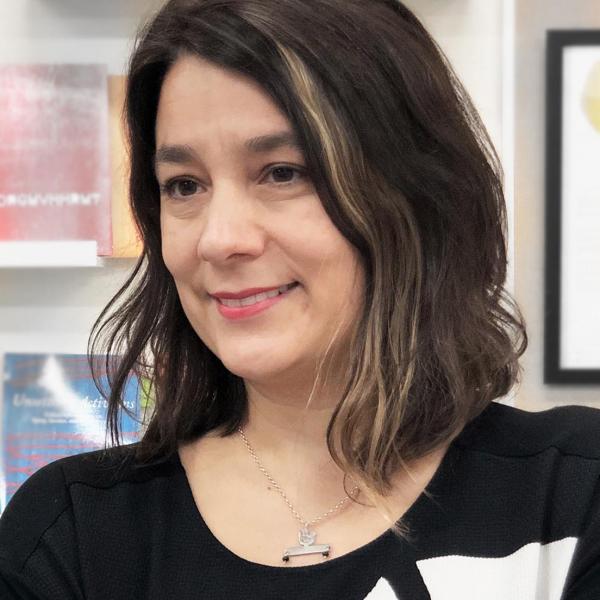
Gabriela Aceves Sepúlveda
Dr. Aceves Sepúlveda’s research bridges the histories of art, media, and technology with gender and women studies, and art and design practice. She is the author of Women Made Visible: Feminist Art and Media in post-1968 Mexico (University of Nebraska Press) and several peer-reviewed articles, book chapters, and research-creation projects on feminist media in Latin America, global networks of artistic exchange, aging and activism, and the histories of immersive technologies in the Global South. Currently, she is working on a book manuscript which explores the work of four Latin American composers working at the intersections of visual and sound art to suggest an alternative history of electronic music and twentieth-century avant-gardes. Her video and sculptural installations that explore the body as a site of cultural and gender inscriptions have been exhibited in Canada, Mexico, France, India, and Chile.

Charles Acland
Charles R. Acland is Professor and Chair of the Department of Communication Studies, Concordia University, Montreal. Acland has been a visiting scholar at McGill University, University of Minnesota, Harvard University, and University of California-Santa Barbara. His monographs include Youth, Murder, Spectacle: The Cultural Politics of "Youth in Crisis" (Perseus/Westview Press, 1995), Screen Traffic: Movies, Multiplexes, and Global Culture (Duke UP, 2003), and Swift Viewing: The Popular Life of Subliminal Influence (Duke UP, 2012). Acland’s edited books are Harold Innis in the New Century: Reflections and Refractions (McGill-Queen’s UP, 1999) with William Buxton, Residual Media (U of Minnesota Press, 2007), and Useful Cinema (Duke UP, 2011) with Haidee Wasson.
Most recently, he co-edited with Eric Hoyt the open-access Arclight Guide to Media History and Digital Humanities (REFRAME Books/Project Arclight, 2016). Acland was Concordia University Research Chair (2004-2015) and editor, with Catherine Russell, of the Canadian Journal of Film Studies (2008-2016).
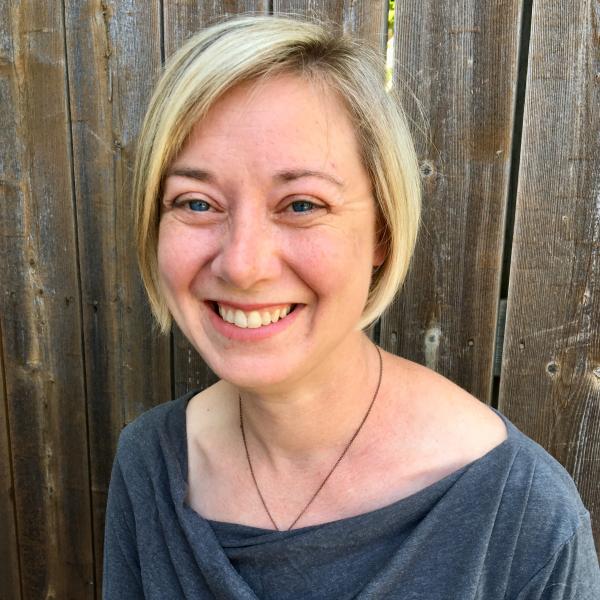
Stacy Allison-Cassin
My initial career plans were to be a professional orchestral musician. When I decided that was not a path I wanted to continue to pursue, I was delighted to find a new path in music librarianship—a career that allowed me to combine my knowledge and passion for music with my love for libraries. I also discovered I have a love of classification, metadata and information systems. Something I fostered as a music cataloguer at York University and later in roles related to digital humanities and linked data. I delved further into my love of music and information with a PhD in Humanities at York where my dissertation entitled: “Fugitive Phrases: Arcade Fire, Love Song, and the Amorous Self” draws on Luhmann’s theory of love as information system to discuss the ways music supports and promotes amorous communications.
I am Citizen of the Métis Nation of Ontario and I have long been active in research, and professional and community work related to social justice and equity. I am an active member of professional associations and am currently Chair of the Indigenous Matters Standing Committee of IFLA, a community lead in the National Knowledge and Language Alliance and a member of many other advisory bodies. I believe strongly in finding ways to make access to information more equitable and have been involved in open access initiatives in North America for many years with strong ties within the “open” movement. I am a very active member the Wikimedia community where I focus the bulk of my energy on Wikidata. However, I do write and edit Wikipedia articles in my spare time.
Keith Bennie
Keith Bennie is the Senior Director of Audience & Community at the Toronto International Film Festival, where he leads five areas of audience engagement: public programs, youth programs, community impact, seniors and volunteers, and film preservation. He is an arts education leader, with previous experience at the Ontario Science Centre, Theatre Museum Canada, and the International LGBTQ+ Youth Organization. Bennie teaches about public programming at Humber College and was selected as a Toronto Arts Council Leaders Lab fellow.
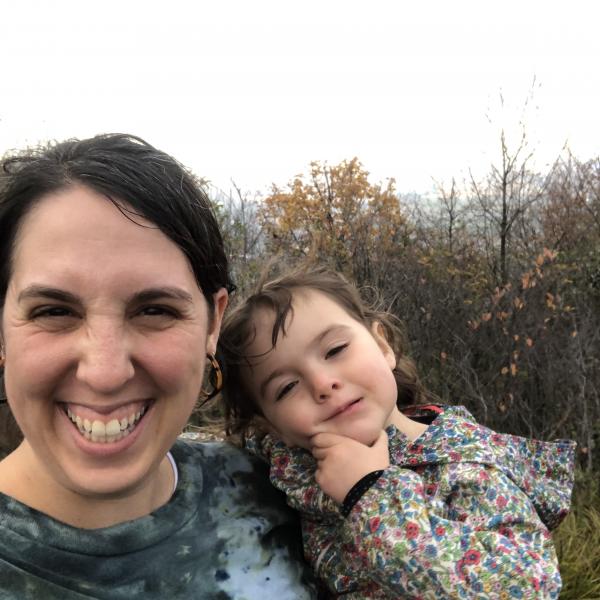
Amber Berson
Amber Berson is a writer, a curator, and an Art Historian. She holds a doctoral degree from Queen’s University where her SSHRC-funded research examined artist-run culture and feminist, utopian thinking. She most recently curated Souper Spaghetti (2021, with Manon Tourigny), Utopia as Method (2018); World Cup! (2018); The Let Down Reflex (2016-2018, with Juliana Driever); TrailMix (2014, with Eliane Ellbogen); and *~._.:*JENNIFER X JENNIFER*:.~ (2013, with Eliane Ellbogen); The Annual Art Administrator’s Relay Race (2013, with Nicole Burisch); The Wild Bush Residency (2012–14); and was the 2016 curator-in-residence as part of the France-Quebec Cross-Residencies at Astérides in Marseille, France. She is a co-lead at Art+Feminism, a project that works for a more equitable Wikipedia, and was the 2019-2020 Wikipedian in Residence at Concordia University. She is also the Executive Director of The Visual Arts Centre in Montreal.
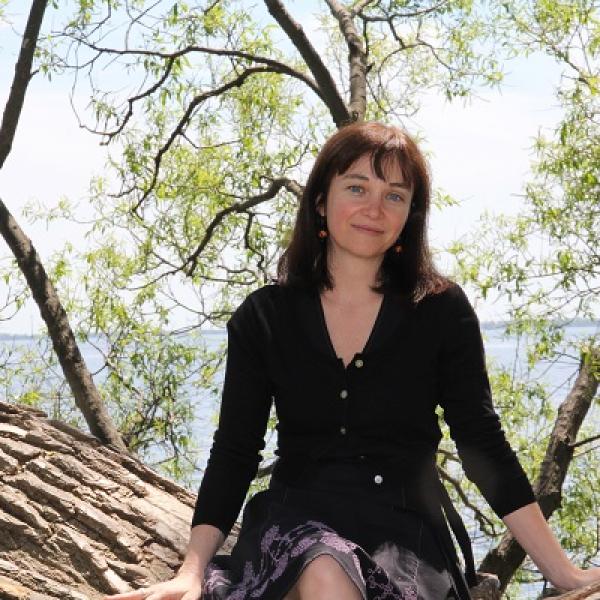
Karine Bertrand
My interest for cinema and films in general came from watching old black and white movies with my grandma on PBS on Sunday afternoons. Beyond these old Hollywood narratives, I have grown to love films stemming from all parts of the world. More recently, my research interests have been centered on Quebec cinema (intercultural collaborations), Indigenous films and poetry, road movies, transnational cinemas and oral practices of cinema.
I am also a member of the Vulnerable Media Lab at Queen’s and lead researcher for the Archive/Counter-Archive research project (financed by SSHRC) working with the Arnait Video Productions collective of Inuit women and with Québécois filmmaker Marie-Hélène Cousineau. I am co-director of the research group EPIC (esthétique et politique de l’image cinématographique) where we discuss the politics and aesthetics of screen images. My latest publications include a book chapter on the rock group U2 ( MacKenzie and Iversen, 2021) a book chapter on the exploration of Indigenous lands (Cahill and Caminati, 2020) an article on Indigenous women and testimonies (Canadian Journal of Film Studies, 2020) on Québécois cinema and Americanité (American Review of Canadian Studies, 2019) and a book chapter on Canadian and Québécois Indigenous cinemas (Oxford Handbook to Canadian Cinema, 2019). I am presently working on a project involving the creation of an international network for Indigenous women filmmakers, and continuing partnerships with the Wapikoni Mobile and the INAAC (the International Network for Aboriginal Audio-Visual Creation).
Besides my research, which I am very passionate about, I love to be outdoors, connecting with nature. I have studied medicinal plants and take every occasion I get to play outside; canoeing, hiking, skiing, camping, gardening. I also love writing poetry and teaching courses where I can develop a strong connection with my students.
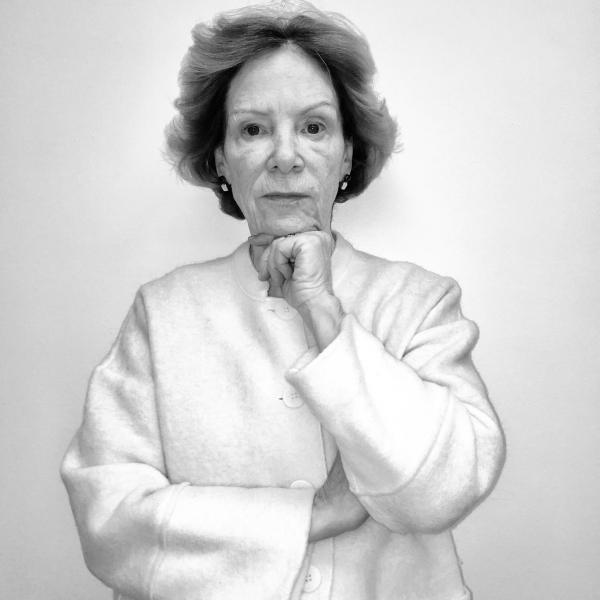
Marta Braun
Marta Braun is the Director of the Film + Photography Preservation and Collections Management MA program at Ryerson. She is author of Picturing Time: the Work of Etienne-Jules Marey (1830-1904) (UCP, 1992), Eadweard Muybridge (Reaktion, 2010) and the children’s book Muybridge and the Riddle of Locomotion (Firefly, 2013). Her essays have appeared in Italian Futurism, 1909-1944: Reconstructing the Universe, (ed. Vivien Greene 2014), Helios, the Art of Eadweard Muybridge (ed. Phillip Brookman, 2010), Musée de quai Branly; la collection, (ed. Yves le Fur, 2008), L’Art de la Photographie des origins à nos jours, (eds. André Gunthert and Michel Poivert, 2007). She has been made a fellow of the Internationales Kolleg für Kulturtechnikforschung und Medienphilosophie, Weimar Germany. (IKKM), a Chevalier de l’Ordre des Palmes Académiques (France), and a Fellow of the Royal Society of Canada.
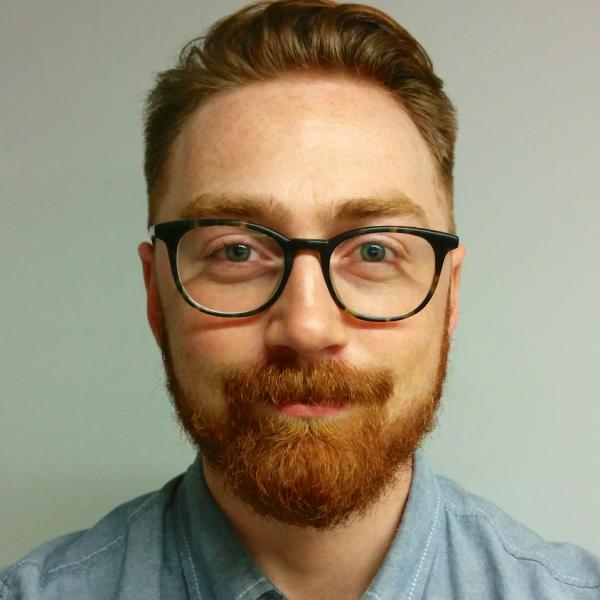
Jesse Brossoit
Jesse Brossoit holds a Master of Arts in Film Preservation and Collections Management from Ryerson University. He has previously worked on cataloguing and archiving film collections for the Art Gallery of Ontario and the Liaison of Independent Filmmakers of Toronto, and is currently the Distribution Coordinator for CFMDC.
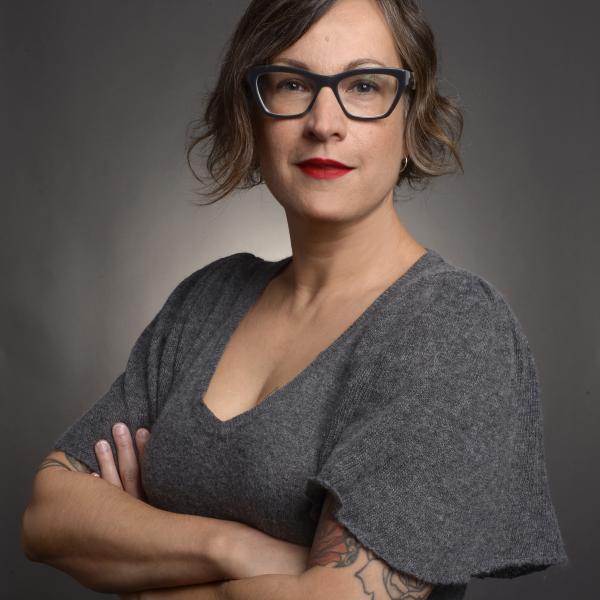
Chloë Brushwood Rose
Chloë Brushwood Rose is a Professor in the Faculty of Education and Vice-Provost Teaching & Learning at York University. Her research interests bridge several fields, including community-engaged visual research methods, media and arts-based education, and gender, feminist and queer studies. Chloë is also a Registered Psychotherapist (Qualifying) working with children, adolescents and their families, affiliated with the Canadian Institute for Child and Adolescent Psychoanalytic Psychotherapy.
She is the co-author of Community-based Media Pedagogies: Relational Approaches to Listening in the Commons (Routledge, 2016), and the co-editor of a recent special issue of the Journal of Teaching and Learning on the impacts of COVID-19 for children, youth and education. Her scholarly work has appeared in several journal publications, including the Psychoanalysis, Culture & Society; Qualitative Studies in Education; Visual Studies; Changing English; International Journal of Leadership in Education; and, Gender and Education. Chloë is co-editor of several anthologies, including two anthologies on queer culture: the Lambda short-listed Brazen Femme: Queering Femininity (Arsenal Pulp Press, 2002) and the winner of a Golden Crown Literary Society Award, And Baby Makes More: Known Donors, Queer Parents, and Our Unexpected Families (Insomniac Press, 2010).
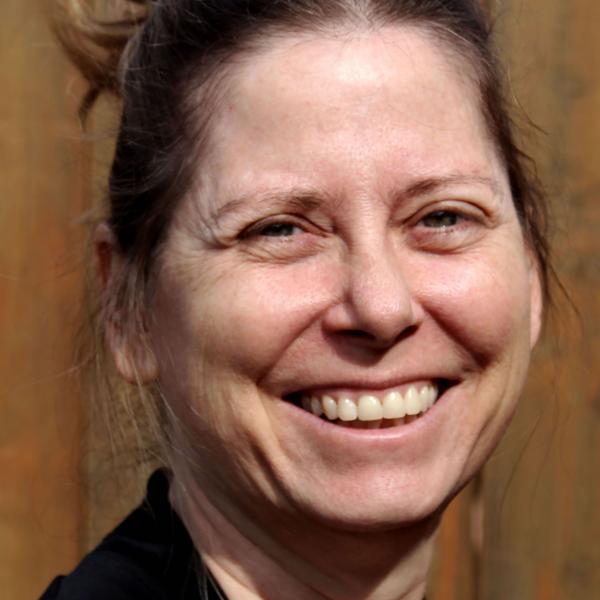
Mary Bunch
Dr. Mary Bunch is an Associate Professor in Cinema and Media Arts, and Canada Research Chair in Critical Disability, Vision and the Arts. Her research interests include critical disability, queer, and feminist theory, social and political thought and philosophies of new media. Her current project, a monograph titled Ecstatic Ethics, explores a shift in contemporary queer, crip and decolonial social movements from individualized, neoliberal forms of freedom, to an emancipatory concept based on an ethics of relationality, solidarity, and nonmastery. In other emergent projects, Dr. Bunch’s examines extended reality (XR), virtual worldmaking and immersive storytelling in media arts and performance studies to better understand how artists and community members from marginalized communities use digital technology to creatively transform social imaginaries. Dr. Bunch is a core member of Vision: Science to Applications (VISTA), an Associate of Sensorium Centre for Digital Arts and Technology, a Fellow of the Bonham Centre for Sexual Diversity Studies (U of T), and Affiliate of Revision Centre for Art and Social Justice (UGuelph). She is also affiliated with graduate programs in Theatre and Performance Studies, Critical Disability Studies, Digital Media, Communication and Culture, and Interdisciplinary Studies. postdoctoral fellowship the Bonham Centre for Sexual Diversity Studies (U of T). She has published articles in the Journal of Literary and Cultural Disability Studies, Culture, Theory and Critique, Feminist Theory, Studies in Social Justice, and the Canadian Journal of Human Rights, among others.
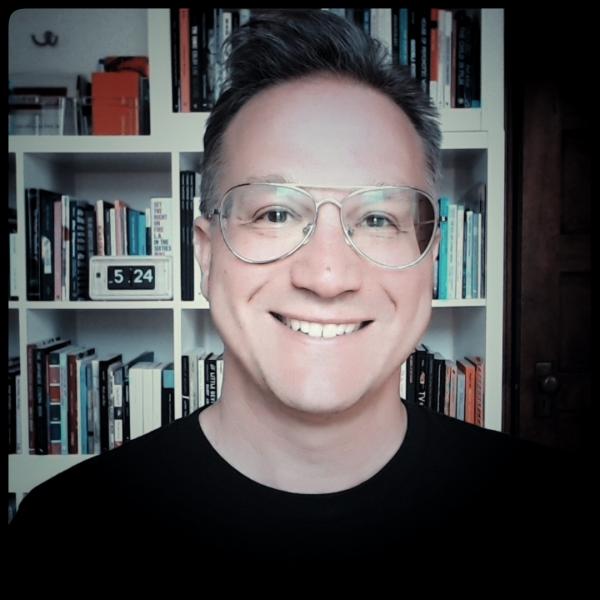
Andrew Burke
Andrew Burke is a Professor in the Department of English at the University of Winnipeg. His research focuses on Film and Television Studies, Critical Theory, Cultural Studies, and Popular Music Studies.
Champion of residual media, supporter of melancholic musical forms, lover of slow cinema, digger in the unofficial archives, devotee of the odd and obscure.
His book, Hinterland Remixed: Media, Memory, and the Canadian 1970s, is available from McGill-Queen’s University Press.

Camille Callison
Camille Callison, Tahltan Nation member, is the University Librarian at the University of the Fraser Valley (UFV) and a passionate cultural activist pursuing a PhD in Anthropology at the University of Manitoba. Her research critically examines the relationship between cultural memory institutions and the continued survival and activation of Indigenous knowledges, languages, and cultures. Current professional contributions, Camille serves as the Chair of the National Indigenous Knowledge and Language Alliance (NIKLA) and IFLA Professional Division H as well she serves on the Board of Directors of the Canadian Research Knowledge Network (CRKN), and as a member of IEEE P2890™ Recommended Practice for Provenance of Indigenous Peoples’ Data, OCLC Reimagine Descriptive Workflows Advisory Group, NISO Diversity, Equity, & Inclusion subcommittee and the Canadian Truth and Reconciliation Commission Taskforce on Archives. She is committed to being part of creating meaningful change related to equity, diversity, and inclusivity in the library, archival and cultural memory professions.
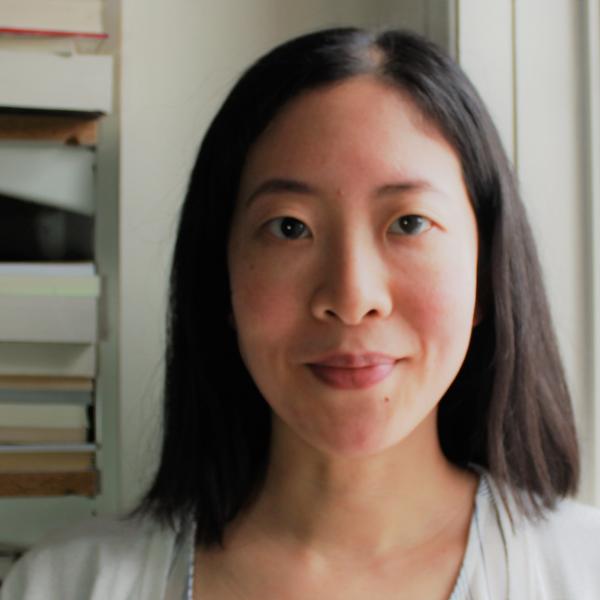
May Chew
May Chew is an Assistant Professor at the Mel Hoppenheim School of Cinema and Department of Art History at Concordia University. Chew collaborates on Houses on Pengarth, a research and curation project centred on developing a socially-engaged, experimental art lab in Toronto’s Lawrence Heights community. Her recent work includes a chapter in the anthology Material Cultures in Canada (WLU Press, 2015); articles in Imaginations, the International Journal of Heritage Studies, the Journal of Canadian Art History; and Public 57: Archives/Counter-Archives, which she co-edited with Susan Lord and Janine Marchessault.

Christopher Chong Chan Fui
Chris Chong Chan Fui works with varying materials and moving image formats in the fields of natural sciences, sport, space, and economics. Chong has exhibited at the Hirshhorn Museum & Sculpture Garden, Palais de Tokyo, Gwangju Biennale, EYE Film Institute Netherlands, and premiered his films at the Cannes' Directors’ Fortnight, Vienna, BFI London, and TIFF. As part of his research process, Chong was also a Smithsonian Artist Research fellow (National Museum of Natural History), an Asian Ford Foundation fellow, and a Rockefeller Foundation's Bellagio Arts fellow.

David Clark
David Clark is a media artist interested in experimental narrative and cinematic use of the internet. Recent works include interactive narrative works for the web: 88 Constellations for Wittgenstein, Sign After the X, and A is for Apple and also the non-linear film Meanwhile and the feature film Maxwell’s Demon. His work has been exhibited at Sundance, SIGGRAPH, EMAF, Transmediale, and the Museum of Moving Images in New York. His work has won awards at FILE, Sao Paulo, and the SXSW Interactive Festival. 88 Constellations for Wittgenstein was included in the Electronic Literature Collection #2 and won the $25,000 2011 Nova Scotia Masterwork Award. He teaches Media Arts at NSCAD University in Halifax.
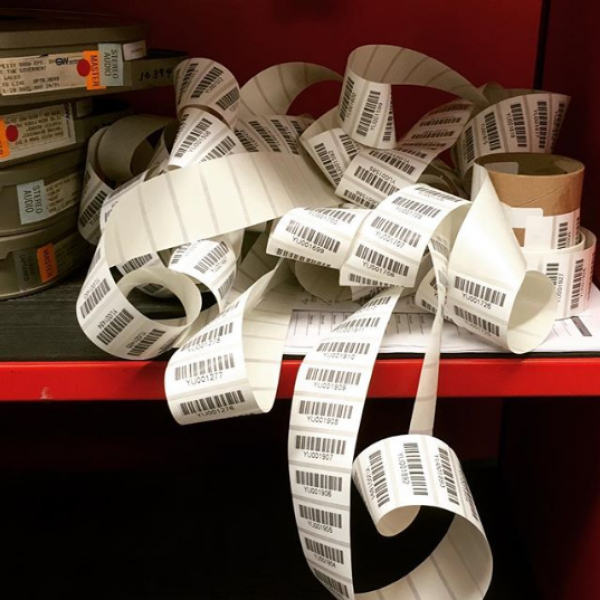
Katrina Cohen-Palacios
Katrina Cohen-Palacios is an archivist at the York University Libraries Clara Thomas Archives and Special Collections. She holds a Master of Information and Master of Museum Studies from the University of Toronto’s Faculty of Information. She is currently the co-chair of the ACA Sound and Moving Image Special Interest Section; having previously served as co-chair of the AAO’s Professional Development Committee and as an executive member of the Toronto Area Archivists Group. Her work includes processing donations from community based archival projects (Egypt Migrations: a Public Humanities Project and the Home Made Visible collection).
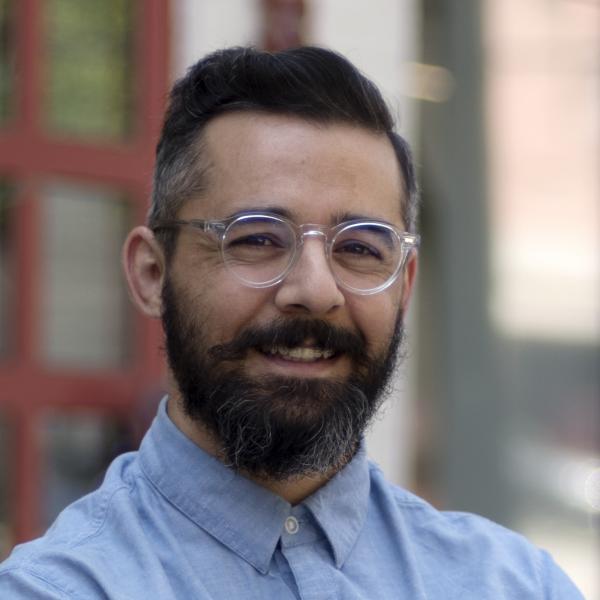
Dave Colangelo
Dave Colangelo is Assistant Professor of Digital Creation and Communication in the School of Professional Communication (FCAD) at Ryerson University, Director (North America) of the Media Architecture Institute, and a founding member of Public Visualization Studio. His work as an artist, educator, and researcher focuses on urban media environments as sites for critical and creative engagements with the city, public art, and information. He is the author of The Building as Screen: A History, Theory, and Practice of Massive Media (Amsterdam University Press, 2020).

Ryan Conrad
Ryan Conrad is Adjunct Research Faculty at the Feminist Institute for Social Transformation at Carleton University and previously held a SSHRC postdoctoral fellowship with Archive/Counter-Archive from 2019-2022. He is currently working on his manuscript entitled Radical VIHsion: Canadian AIDS Film & Video. He holds a PhD in Cultural Studies from Concordia University and an MFA from Maine College of Art. He is an active film and video maker.

Rosemary Coombe
Rosemary J. Coombe holds the Tier One Canada Research Chair in Law, Communication and Culture at York University in Toronto, where she is a Full Professor holding appointments in the Departments of Anthropology and Social Science. She also teaches in the Communications and Culture Joint PhD/MA Programme. Prior to being awarded one of Canada’s first Canada Research Chairs, she was Full Professor at the University of Toronto Faculty of Law. Her award winning book, The Cultural Life of Intellectual Properties was reprinted in 2008. She publishes in the fields of anthropology and critical legal studies. Her work addresses the cultural, political, and social implications of intellectual property laws, and the politics of cultural property and heritage management at the intersections of neoliberalism, informational capital, and human rights.
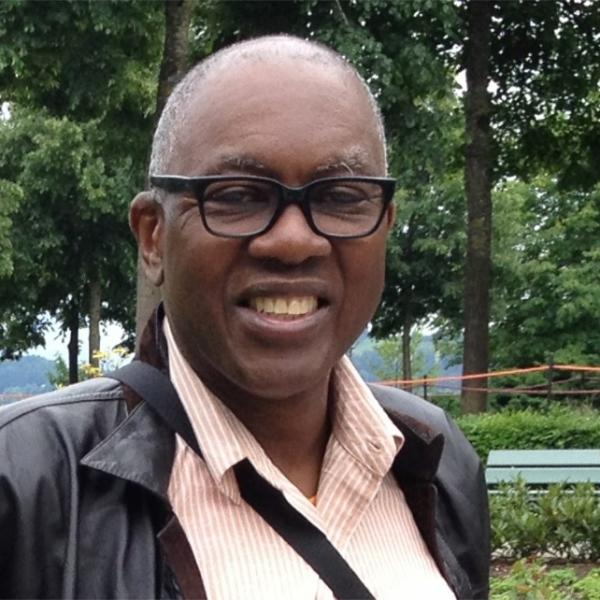
Warren Crichlow
Dr. Warren Crichlow is Associate Professor at York University Toronto, Canada where he teaches cultural studies and education. He is a co-editor of Spaces of New Colonialism: Reading Schools, Museums and Cities in the Tumult of Globalization (Peter Lang, 2020). His most recent article (with Kass Banning) is “A Grand Panorama: Isaac Julien, Frederick Douglass, and Lessons of the Hour,” in Film Quarterly, Summer 2020. His current project is a co-edited book on intersections of education and architecture in the prose-fiction of W. G. Sebald (1944-2001), tentatively titled Unsettling Complacency: Hope and Ethical Responsibility.
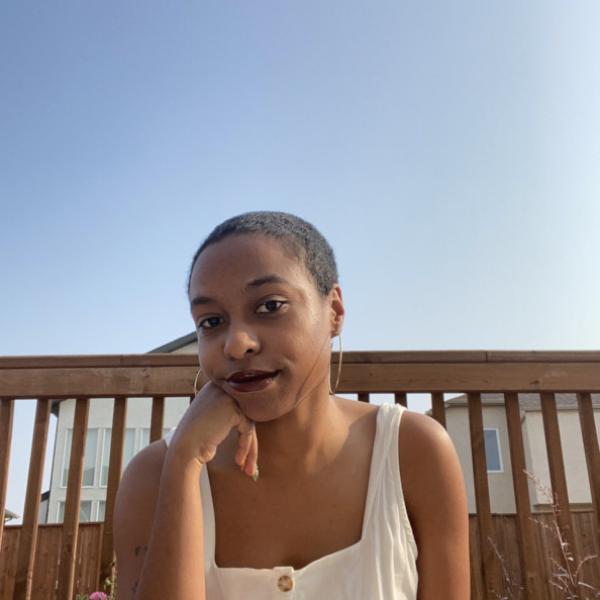
Mahlet Cuff
Mahlet Cuff is an emerging interdisciplinary artist and curator producing work through audiovisual storytelling. Using analog and digital photography, found and generated recordings, they explore subjects of healing, memory and collective care to question relationships between kin and the relationship they have with themselves. Cuff draws inspiration from the idea of creating their own worlds, building and rebuilding what it means to generate bonds with one another. She is a part of the curatorial team Patterns Collective where they have showcased work for Plug In ICA, Gallery 1c03, UManitoba School of Art Gallery. Cuff’s work has been shown locally and nationally.
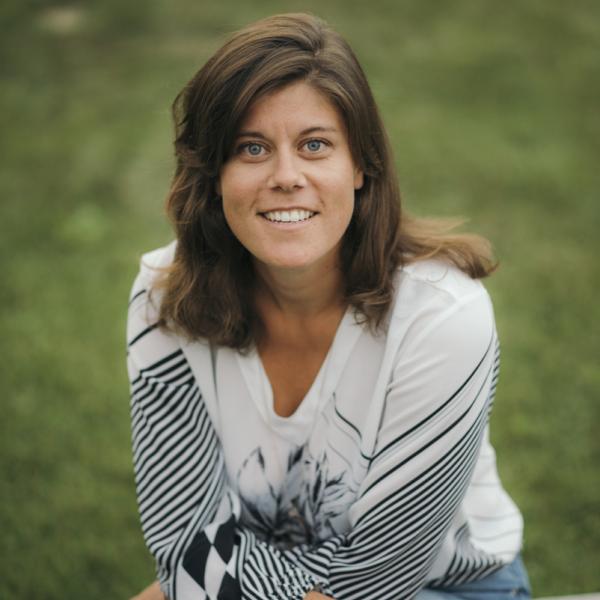
Jessie Curell
An experienced, passionate and committed Media Educator for the past 15 years, Jessie Curell has been teaching dynamic, production-based Media and Digital Literacy workshops across Canada, the US and Asia with the National Film Board of Canada and a wide variety of schools, museums, non-profit organizations and film festivals. She has met thousands of teachers and students, and has first-hand knowledge of specific needs and interests, which have helped shape the way she works with each group.
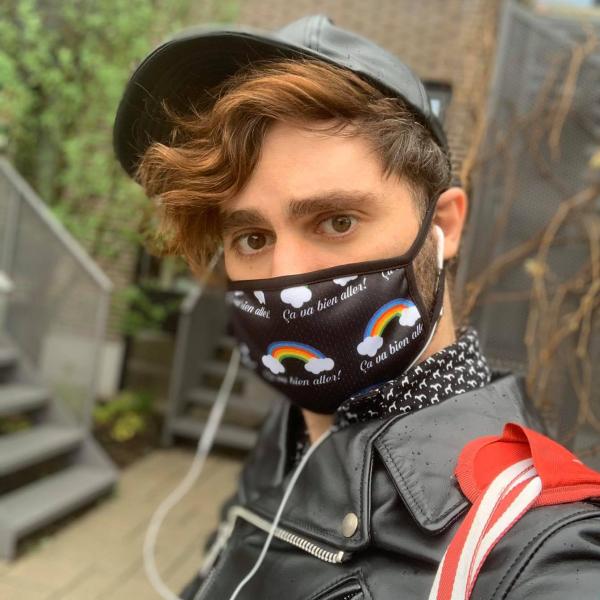
Antoine Damiens
Dr. Antoine Damiens was a MITACS Post-doctoral Fellow at York University. He holds a PhD in Film and Moving Image Studies from Concordia University. His first book LGBTQ Film Festivals: Curating Queerness, was recently published with Amsterdam University Press (2020). Antoine Damiens's research examines the cultural impact of LGBTQ film festivals, the role played by research-creation and research-curation in academic knowledge production, and the differences between Canadian and French modes of queerness. Antoine Damiens co-chairs the Feminist and Queer Research Workgroup within the European Network for Cinema and Media Studies (NECS) and co-edits the Film festivals reviews section of the journal NECSUS.

Patricio Dávila
Patricio Dávila is a designer, artist, and educator. He is currently Associate Professor in Design at OCAD University, Co-director of Public Visualization Lab, and a member of the OCADU Mobile Media Lab and Visual Analytics Lab. His research focuses on developing a theoretical framework for examining data visualization as assemblages of subjectivation and power.
In his creative practice he has created mobile applications, locative media projects, essay videos, new media installations, and participatory community projects including: Powers of Kin, Chthuluscene, Tent City Projections, The Line, and In The Air Tonight. His curatorial projects, including Multiplex and Diagrams of Power, investigate the essay film, data, and critical media practices. His research and practice focuses on the politics and aesthetics of participation in the visualization of spatial issues with a specific focus on urban experiences, mobile technologies, and large-scale interactive public installations.
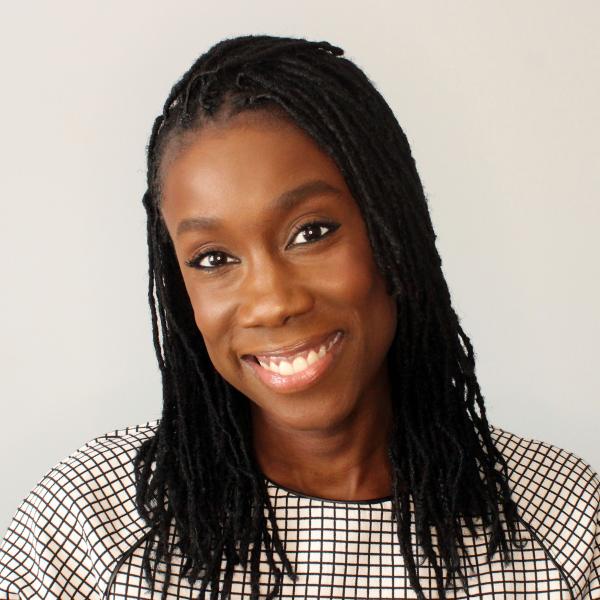
Desirée De Jesus
Dr. Desirée de Jesús is an Assistant Professor in the Department of Communication and Media Studies at York University. She was a Postdoctoral Research Fellow in the Institute for Gender, Race, Sexuality and Social Justice at UBC. She holds a PhD from Concordia University and an MA (with Distinction) from Kings College London. Dr. de Jesús is also a video essayist and moving images curator. Her videographic work analyzes films centering girls, women, and folks of color. Her previous curatorial work supported the Visual Collections Repository (Concordia University) and the Toronto International Film Festival. Dr. de Jesús’s research and teaching explore the intersections of race, gender, aesthetics, and technology in narrative film and media through traditional, creative, and curatorial methodologies. She is currently a co-investigator for a Connection Grant participatory filmmaking project about racialized girls, their futures, and experiences of COVID-19 inequalities. Her previous research was supported through various awards.
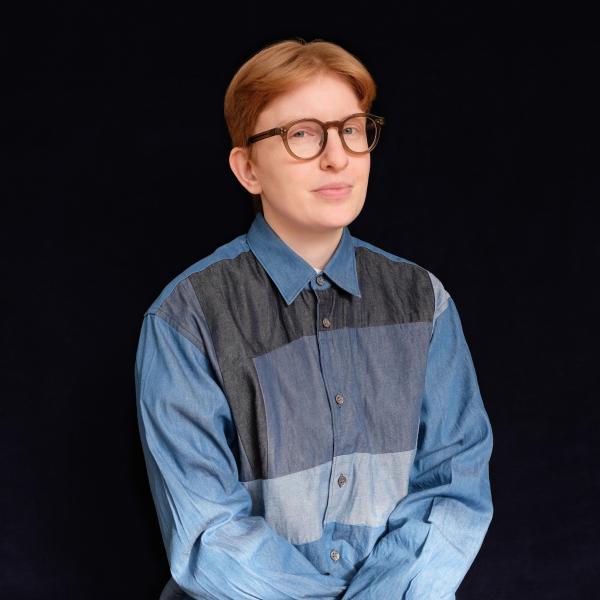
Axelle Demus
Axelle Demus is a FOCAS (Faculty Organizing for Community Archives Support) postdoctoral fellow at McGill University’s School of Information Studies and served as the Educational Co-Lead on the Archive/Counter-Archive project. Their research centres on community-based archives, histories of cable access television, media and archival pedagogy, and LGBTQ2+ cultural production in Canada. Axelle's writing has been published or is forthcoming in the Historical Journal of Film, Radio and Television, PUBLIC Journal, the Canadian Journal of Film Studies, and Synoptique: An Online Journal of Film and Moving Image Studies. They hold a PhD in Communication and Culture from York University and Toronto Metropolitan University.
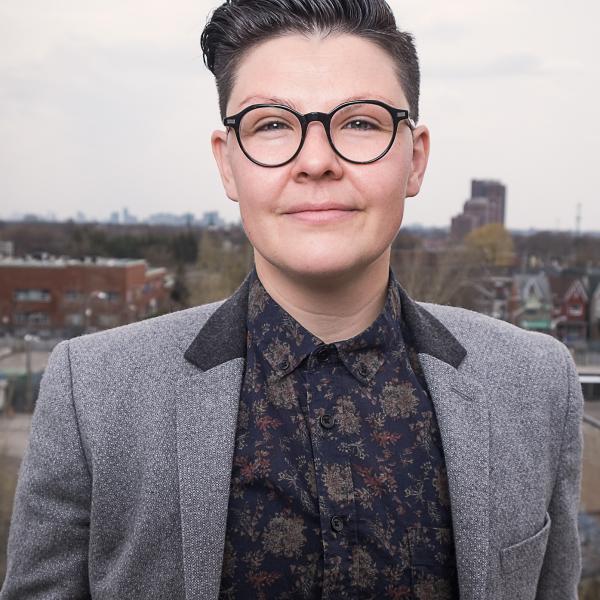
Tamara de Szegheo Lang
Tamara de Szegheo Lang is Project Manager of the Vulnerable Media Lab and Adjunct Assistant Professor in the Department of Film and Media at Queen’s University. She holds a doctorate in Gender, Feminist, and Women’s Studies from York University. Dr. de Szegheo Lang’s research takes up queer history, community-based archives, visual culture, and the affective relationships between LGBT2Q people and the past. Her publications have appeared in the Journal of the Canadian Historical Association, the Journal of Lesbian Studies, and the Journal of Homosexuality. Dr. de Szegheo Lang is also active in curatorial and programming roles. She is a member of the programming committee for the Reelout Queer Film Festival in Kingston, a co-programmer of the Born in Frames Screening Series at Queen’s University, and past curatorial committee co-chair of the Canadian Lesbian and Gay Archives.
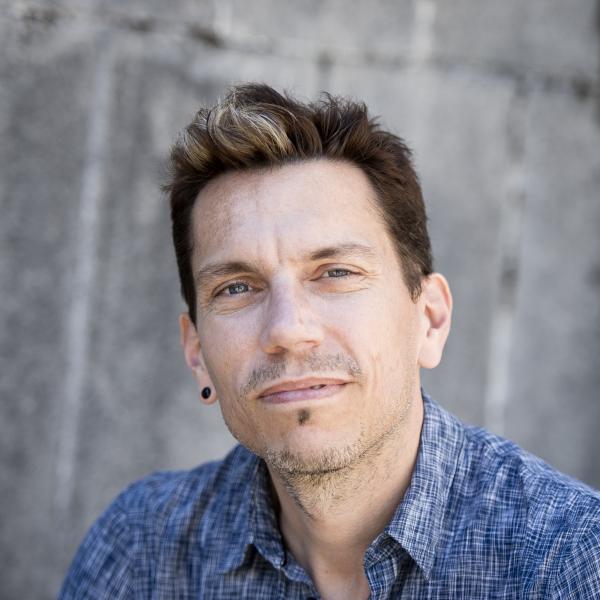
Peter Dickinson
Peter Dickinson is a Professor at Simon Fraser University, with a joint appointment in the School for the Contemporary Arts and the Department of English. He is also directs SFU’s Institute for Performance Studies. A performance studies scholar, Peter has published extensively on theatre, dance, film, and performance art, and he is the author, editor, or co-editor of ten books and special journal issues. Peter’s own plays include The Objecthood of Chairs (SFU Woodward’s, 2010), Positive ID (Berkeley Theatre, Toronto, 2012), Long Division (Pi Theatre, 2016/17), and The Bathers (excerpt, Zee Zee Theatre, 2017). As a writer, researcher, facilitator, outside eye, collaborator, and occasional mover, Peter has worked with several Vancouver-based dance artists and companies, including Justine A. Chambers and Alexa Mardon, plastic orchid factory, Ziyian Kwan/dumb instrument Dance, Tara Cheyenne Performance, Kokoro Dance, Vanessa Goodman/action at a distance, Lesley Telford/Inverso Dance, and Rob Kitsos.
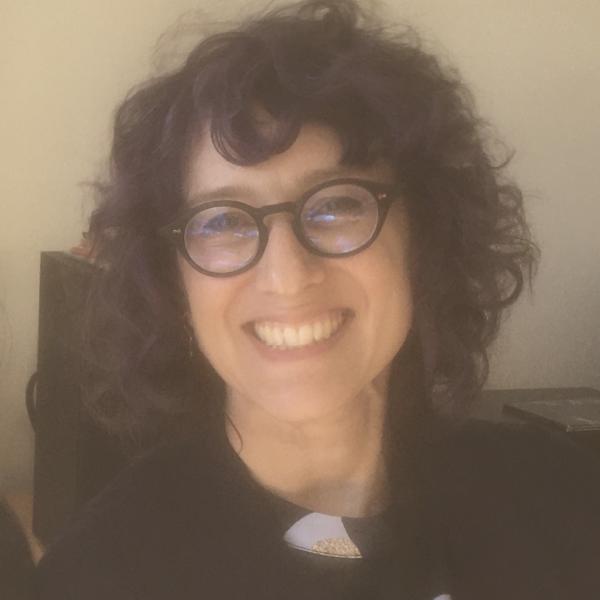
Zoë Druick
Zoë Druick is Professor of Communication at Simon Fraser University. Her research considers histories, theories,and trajectories of documentary and reality-based media with an emphasis on their intersection with biopolitical projects. This work has brought her into contact with numerous archives and developed her awareness of their precarity. She is author or editor of five books, including Cinephemera: Archives, Ephemeral Cinema, and New Screen Histories in Canada (McGill-Queen's) and The Grierson Effect: Documentary’s International Movement (BFI). Current projects include a SSHRC-funded project on the legacies of the NFB's Studio D, the women's studio, and a manuscript on UNESCO's biopolitical media strategies.
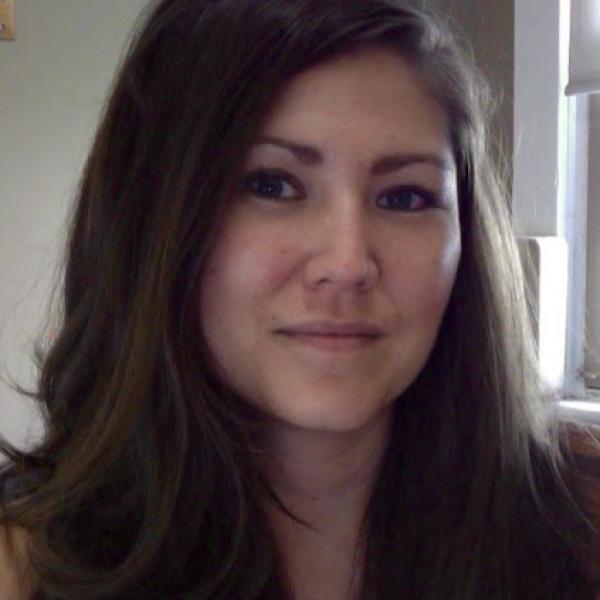
Jennifer Dysart
Jennifer Dysart is a short film director, set decorator, and archival researcher. She was born in Alberta (Blackfoot territory), lives in Hamilton, Ontario (Haudenosaunee territory), and has Cree roots from South Indian Lake, Manitoba. She was a commissioned filmmaker for the Home Made Visible project by Regent Park Film Festival and created Caribou in the Archive (2018/19), a short experimental found footage film. Dysart envisions more inclusive archives of the future that are relevant and accessible to the public, include the personal stories of individuals and small cultural groups, and expand the national and provincial narratives of history. She has a special interest in recovering historical materials about the large-scale hydro developments that have irreparably affected Cree territory in the north.
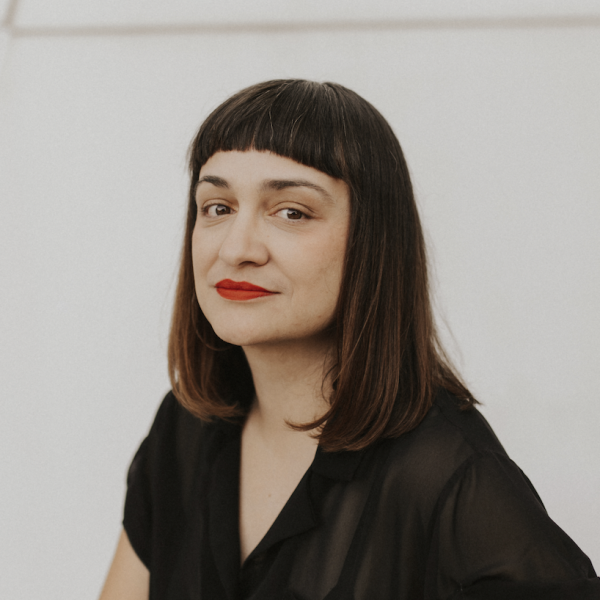
Almudena Escobar López
Almudena Escobar López is an independent curator, archivist, and researcher from Galicia, Spain. Her interdisciplinary research centers around documentary and artist’s moving image practices, but opens onto larger questions regarding decoloniality, visual historiography, anthropology, and alternative information ecologies. As a guest curator, Almudena has curated and co-curated a number of film and video series which have been presented at Film Society Lincoln Center, Anthology Film Archives, Museum of Modern Art, Aspen Museum of Art, Cinemateca de Bogotá, UnionDocs, Cineteca Nacional de México, among others. She was program advisor of the 2020 and 2022 editions of Art of the Real at the Film Society of Lincoln Center, and with Sky Hopinka, she co-curated the 67th Flaherty Film Seminar, Continents of Drifting Clouds. She is Assistant Professor on Film History, Film Preservation and Collection Management at the School of Image Arts of the Toronto Metropolitan University.
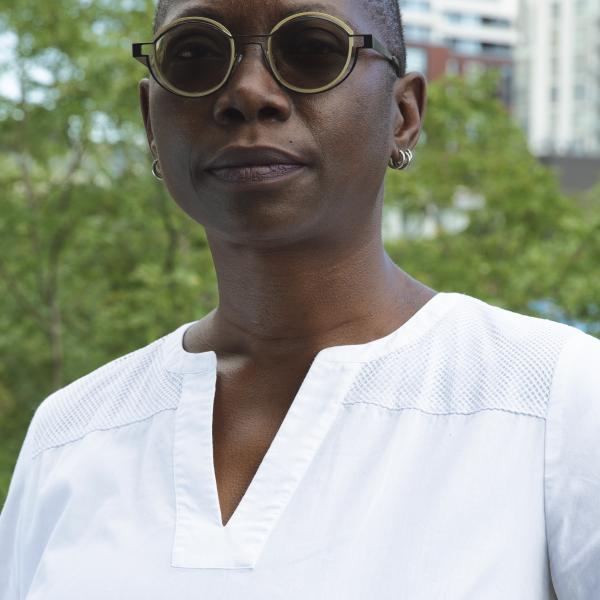
Andrea Fatona
Andrea Fatona is an independent curator and an associate professor at the Ontario College of Art and Design University. She is concerned with issues of equity within the sphere of the arts and the pedagogical possibilities of art works produced by ‘other’ Canadians in articulating broader perspectives of Canadian identities. Her broader interest is in the ways in which art, ‘culture’ and ‘education’ can be employed by to illuminate complex issues that pertain to social justice, citizenship, belonging, and nationhood. She is the recipient of awards from Canada Council for the Arts, Ontario Arts Council, the Social Sciences and Humanities Research Council of Canada, and was the 2017/18 OCAD U-Massey Fellow. She is currently a Canada Research Chair II in the Faculty of Art. Fatona has published scholarly articles, catalogue essays, and book chapters in a range of publications.
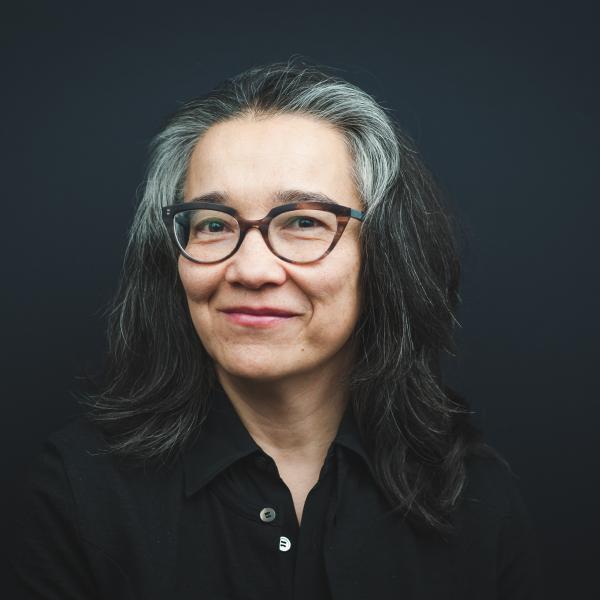
Monika Kin Gagnon
Monika Kin Gagnon is Professor of Communication Studies at Concordia University. She is author of Other Conundrums: Race, Culture, and Canadian Art (2000), 13 Conversations about Art and Cultural Race Politics (2002) with Richard Fung, and co-edited Reimagining Cinema: Film at Expo 67 (2014) with Janine Marchessault. She produced the DVD-catalogue restoration, Charles Gagnon: 4 Films (2009), on her late artist-father’s experimental 1960’s films, and related interactive Korsakow film, Archiving R69 (2011). She was co-curator of In Search of Expo 67 at the Musée d’art contemporain de Montréal for the 50th anniversary of Expo 67, including an expanded cinema program of digitally restored multi-screen films from Expo 67. She curated La Vie polaire/Polar Life, a digital simulation of the 11-screen Expo 67 film for Cinémathèque Québécoise (2014), and Theresa Hak Kyung Cha | Immatérial for DHC Art/Centre Phi (2015). She is working on Posthumous Cinema: Unfinished Films in the Archives.

Anne Golden
Anne Golden is an independent curator and writer whose programs have been presented at Musée National du Québec, Edges Festival and Queer City Cinema, among others. She has written for FUSE and Canadian Theatre Review. Golden has participated in numerous panels on curatorial practices, independent distribution and, more recently, horror films. Golden is Artistic Director of Groupe Intervention Vidéo (GIV). She teaches in the Media Arts Department of John Abbott College. Her novel FROM THE ARCHIVES OF VIDÉO POPULAIRE (Pedlar Press) was released in March, 2016. Golden has made over twenty videos including LES AUTRES (1991), FAT CHANCE (1994), BIG GIRL TOWN (1998) and THE HORROR CYCLE (2016-2018).

John Greyson
The recipient of the 2000 Toronto Arts Award for film/video and the 2007 Bell Award in Video Art, John Greyson is a filmmaker, video artist, writer, activist and educator whose productions have won accolades at festivals throughout the world.
Feature films include: Urinal (1988 – Best Feature Teddy, Berlin Film Festival); Zero Patience (1993 – Best Canadian Film, Sudbury Film Festival); Lilies (1996 – Best Film Genie, Best Film at festivals in Montreal, Johannesburg, Los Angeles, San Francisco); Uncut (1997, Honourable Mention, Berlin Film Festival); The Law of Enclosures (2000, Best Actor Genie); Proteus, co-created with Jack Lewis (2003); and Fig Trees (2008 – Teddy Award for Best Documentary, Berlin Film Festival). Film/video shorts include: The Kipling Trilogy (1984-5), The ADS Epidemic (1987), The Making of Monsters (1991 – Best Canadian Short, Toronto Film Festival; Best Short Film Teddy – Berlin Film Festival), Herr (1998) and Packin’ (2001).
As a director for television, his credits include episodes for such series as Queer as Folk, Made In Canada (Best Director Gemini, 2002), Drop the Beat and Welcome to Paradox.
Professor Greyson’s publications include Urinal and Other Stories (Power Plant/Art Metropole) and co-editor of Queer Looks, a critical anthology of gay/lesbian media theory (Routledge). He is a co-investigator on York’s Future Cinema Lab, a joint research project with Film Professors Janine Marchessault and Caitlin Fisher. Supported by the Canadian Foundation for Innovation, the Future Cinema Lab is a state-of-the-art media research facility into new digital storytelling techniques and how these can critically transform a diverse array of state-of-the-art screens.
John Greyson is active in various anti-censorship, AIDS, peace and queer activist media projects, including The Olive Project, Deep Dish TV, Blah Blah Blah and AIDS Action Now. His contributions as a member and through service on the boards of arts organizations include V/Tape Distribution, Inside Out Film/Video Festival, the Euclid Theatre, Trinity Square Video, Charles St. Video, LIFT (Liaison of Independent Filmmakers Toronto) and Beaver Hall Artists Housing Co-op.
Professor Greyson has taught film and video theory and production in Canada, the United States, Cuba and South Africa. He joined the full-time faculty in York’s Film Department in 2005.
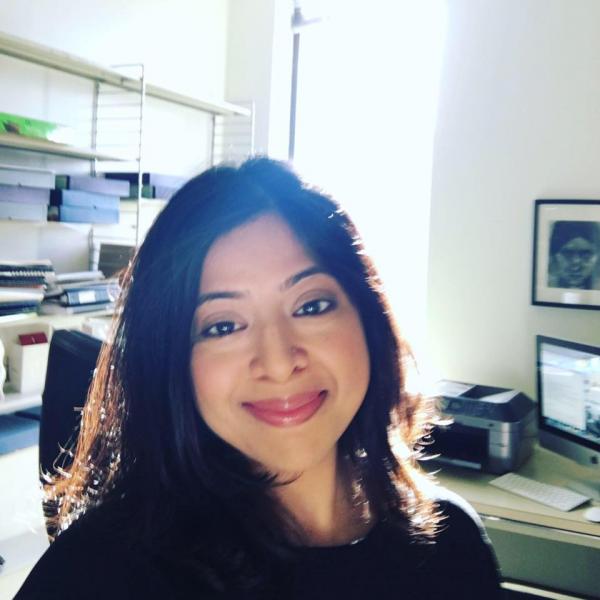
Malini Guha
Malini Guha is an Associate Professor of Film Studies at Carleton University. Her research and teaching are broadly concerned with spatiality and the cinema, with an emphasis on postcolonial and post-imperial modes of mobility, migration, displacement and settlement. She is the author of From Empire to the World: Migrant London and Paris in Cinema, published by Edinburgh University Press in 2015.
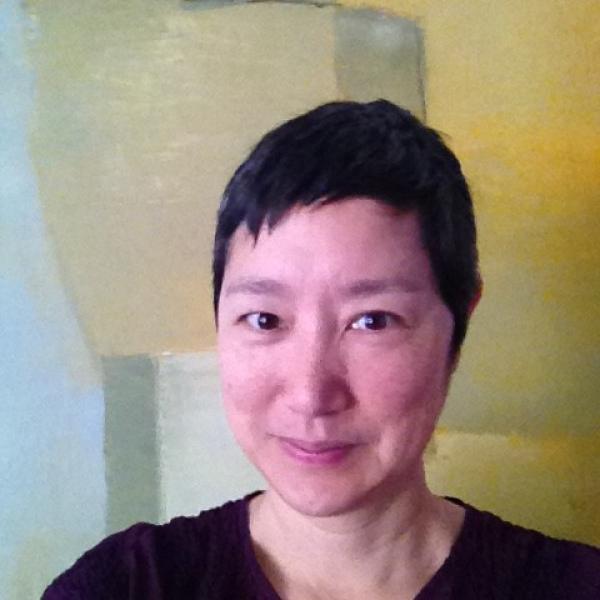
Sharon Hayashi
Professor Hayashi specializes in Japanese cinema and media studies. Her research focuses on the intersection of visual culture and history. Her current research interests include digital mapping, architectures of cinema, and the resurgence of artistic and political collectives in urban Japan. She has published articles on Japanese pink cinema and the travel films of Shimizu Hiroshi, and is currently creating Mapping Protest Tokyo, a historical mapping website that analyzes the new media work of artistic collectives and new social movements in relation to artistic performance and political protest in Japan and globally from 1960 to the present.
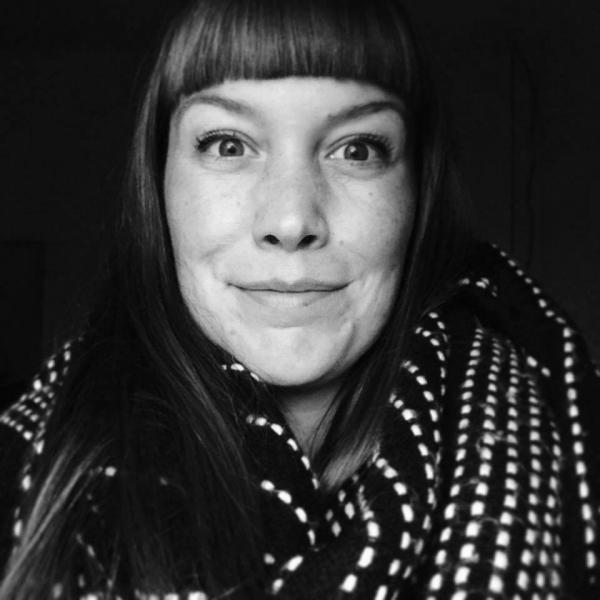
Jacquelyn Hébert
Jacquelyn Hébert has worked in Arts Administration and Education since 2005, holding positions at Concordia University, Emily Carr University of Art and Design (ECUAD), Manitoba Arts Council and the Winnipeg Film Group to name a few. She is currently the Community and Programming Manager for VUCAVU.com as well as the Website Manager for the "Un Canadien errant" research project led by principal investigator Monica Heller at the University of Toronto. Jacquelyn is also an interdisciplinary artist who works primarily in moving image, photography and fibre-based practices. She has presented her work both nationally and internationally and, in 2011, was awarded a research-creation SSHRC grant in support of her project "Francophone-hybride". In addition to an MFA from Concordia University, she holds a Bachelor in Film, Video and Media Arts from ECUAD and a B.A. with a major in Anthropology from the University of Manitoba. She is currently participating in a yearlong residency for mid-career artists led by Le Labo in Toronto.

Kate Hennessy
Kate Hennessy is an Associate Professor specializing in Media at Simon Fraser University’s School of Interactive Arts and Technology (SIAT). As an anthropologist of media and the director of the Making Culture Lab at SIAT, her research explores the role of digital technology in the documentation and safeguarding of cultural heritage. Her multimedia research-creation works and exhibitions investigate documentary methodologies to address Indigenous and settler histories of place and space. She is a founding member of the Ethnographic Terminalia Collective, which has curated exhibitions and projects at the intersection of anthropology and contemporary art since 2009.
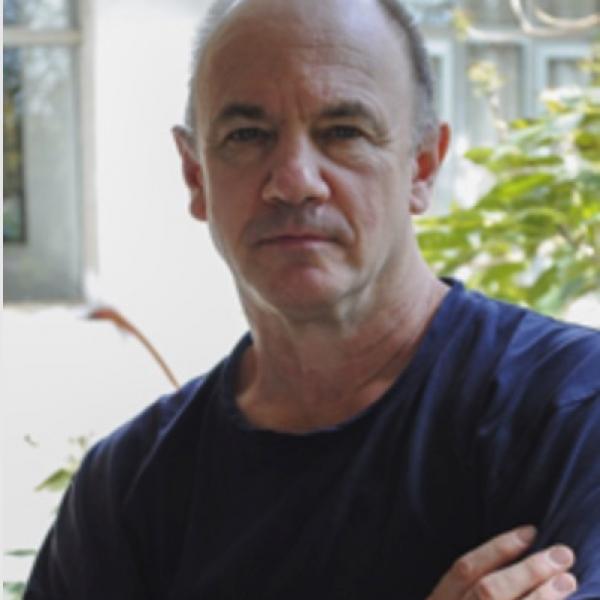
Philip Hoffman
A film artist of memory and association, Philip Hoffman has long been recognized as Canada’s pre-eminent diary filmmaker. Notable works include What These Ashes Wanted, All Fall Down, and Slaughterhouse. He currently teaches at York University in Toronto, and since 1994, he has been the artistic director of the Independent Imaging Retreat (Film Farm), a 1-week workshop in artisinal filmmaking which occurs on his farm in southern Ontario every summer. He has also given these 'Process Cinema' workshops in Cuba (EICTV), Spain, Helsinki, London, Halifax, Calgary, and Dawson City. In 2016 Hoffman received the Governor General’s Award in Visual and Media Arts. His new film,Vulture, uses several processing methods including flower/plant hand-processing, and follows grazing farm animals in their minute inter-species exchanges.
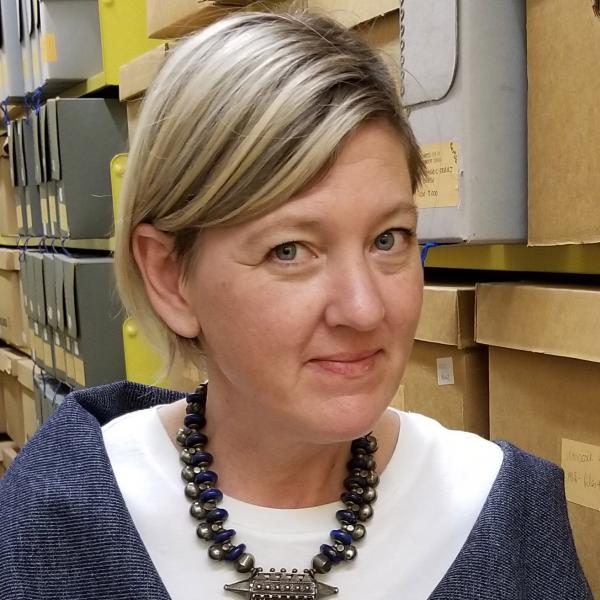
Heather Home
Heather Home has been the Public Services/Private Records Archivist at Queen's University Archives since September 2001. Prior to arriving at Queen's, she worked at the Provincial Archives of Alberta in the Private Records Division, as well as CBC Vancouver within the film archives. Heather holds a Master of Archival Studies (M.A.S.) from the University of British Columbia and a B.A. (Honours) in Cultural Studies from Trent University. Over the past decade she has served on a variety of local, and national, boards and committees for the Association of Canadian Archivists, the Cataraqui Archaeological Research Foundation, Archives Association of Ontario, Kingston Association of Museums, Art Galleries, and Historic Sites and the City of Kingston. Ms. Home’s research interests include the documentation and conservation of media arts heritage, early 20th century Canadian women artists archives, and the use of archival material in the creation of imaginative works.

Laura Horak
Laura Horak investigates the history of transgender and gender-nonconforming film and media in the United States and Canada, and the history of sexuality in U.S. and Scandinavian cinema. Supported by a SSHRC Insight Development Grant, Horak is researching the history of trans, Two-Spirit, and gender-nonconforming filmmaking in Canada and the United States, and creating a pilot online database to promote these filmmakers.
She is author of Girls Will Be Boys: Cross-Dressed Women, Lesbians, and American Cinema, 1908-1934 (Rutgers University Press, 2016), co-editor of Silent Cinema and the Politics of Space (Indiana University Press, 2014), and Unwatchable (Rutgers University Press, January 2019). She also co-edited a special issue of Somatechnics on trans cinematic bodies. She regularly curates film screenings in Canada, Europe, and the United States.
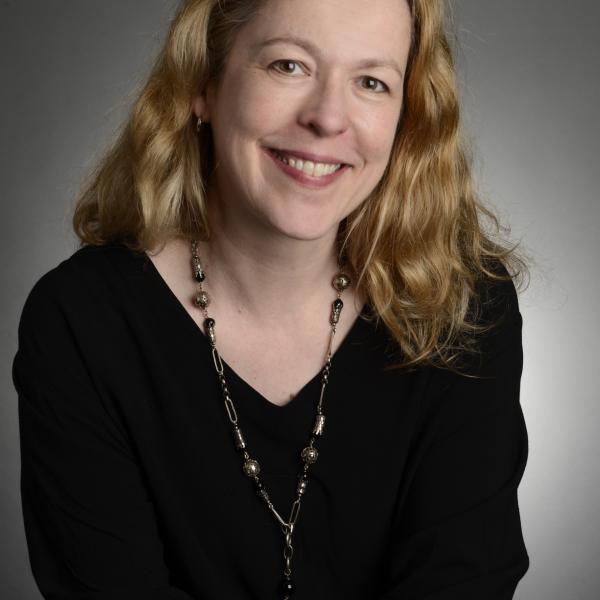
Anna Hudson
Anna Hudson is an art historian, curator, and writer specializing in Canadian Art, Curatorial and Indigenous Studies. Hudson is currently leading Mobilizing Inuit Cultural Heritage, a SSSHRC-supported research/creation collaboration aimed at recovering, preserving, documenting, facilitating, and disseminating Inuit knowledge, culture, and creativity. Dr. Hudson’s curatorial credits include Tunirrusiangit: Kenojuak Ashevak and Tim Pitsiulak (curated with Koomuatuk Curley, Taqralik Partridge, Jocelyn Piirainen, Laakkuluk Williamson Bathory, and Georgiana Uhlyarik, Art Gallery of Ontario, 2018); inVisibility: Indigenous in the City, part of INVISIBILITY: An Urban Aboriginal Education Connections Project (with Dr. Susan Dion and Dr. Carla Rice, Aird Gallery, Toronto, 2013); and Painting Canada: Tom Thomson and the Group of Seven (with Ian Dejardin and Katerina Atanassova, Dulwich Picture Gallery, London, UK, 2011). Professor Hudson continues to pursue research in the area of her doctoral dissertation, Art and Social Progress: the Toronto Community of Painters (1933-1950).
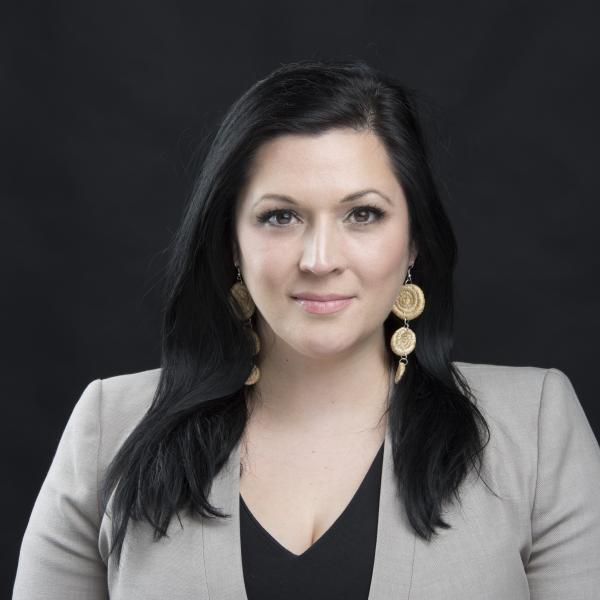
Heather Igloliorte
Heather Igloliorte is an Inuk Assistant Professor and University Research Chair in Indigenous Art History and Community Engagement at Concordia University, where she serves special advisor to the Provost on Advancing Indigenous Knowledges, and co-directs the Indigenous Futures Cluster of the Milieux Institute for Arts, Culture and Technology with Professor Jason Lewis. Her recent curatorial projects include SakKijâjuk: Art and Craft from Nunatsiavut (The Rooms Provincial Art Gallery, touring 2016-2020); Ilippunga: The Brousseau Inuit Art Collection at the Musée National des Beaux-Arts du Québec (permanent exhibition, opened 2016); and Decolonize Me (Ottawa Art Gallery, touring 2011 - 2015), and the forthcoming inaugural exhibition of the Inuit Art Centre at the Winnipeg Art Gallery. Igloliorte currently serves on the Board of Directors for the Inuit Art Foundation, Nunavut Film Board, Native North American Art Studies Association, and Faculty Council of the Otsego Institute for Native American Art History.
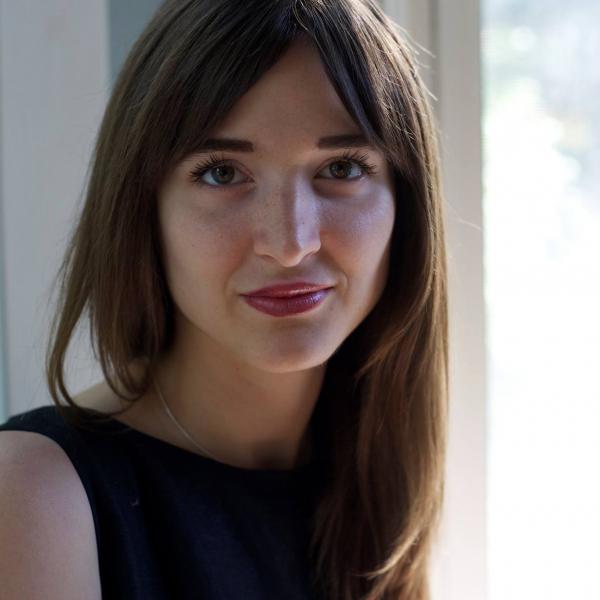
Jessica Jacobson-Konefall
Jessica Jacobson-Konefall is Assistant Professor of Canadian Art and Theory at the School of Fine Art and Music, University of Guelph. Her research interests include Canadian and Indigenous art, Marxist feminism, Critical Theory, Indigenous and critical race theory, and poststructuralist theories. Her current SSHRC Insight Development project focuses on ecological aesthetics in Treaty 1 and Treaty 3 territory (Manitoba/Ontario). She is Collaborator on the SSHRC Partnership Grant Archive/Counter-Archive out of York University, with Anishinaabe artist and cultural worker Angelina Mcleod (Shoal Lake 40 First Nation) and Urban Shaman: Contemporary Aboriginal Art Gallery, working on an art/academic project relating birchbark scrolls with civic/reserve archives. She is working on two book chapters on the relationship between energy "resources" and contemporary arts in Canada, and writing a monograph focused on the art of Rebecca Belmore and other contemporary artists in light of the question: "what does it mean to be here in a good way?" She is a practicing artist.
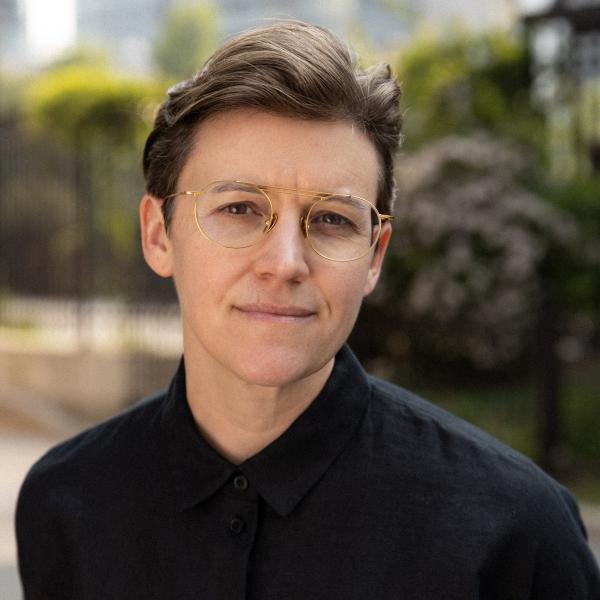
Sue Johnson
Sue Johnson is filmmaker, cinematographer, and Assistant Professor at York University in Toronto, Ontario. Johnson’s practice combines documentary subjects with experimental modes of presentation; currently she is researching the authorship and preservation of several film archives that show early depictions of drag and gender play, and working on a series of short films about queer beach culture. She is in the process of releasing her feature-length documentary, Celestial Queer, a portrait of Canadian experimental animator and activist James MacSwain.
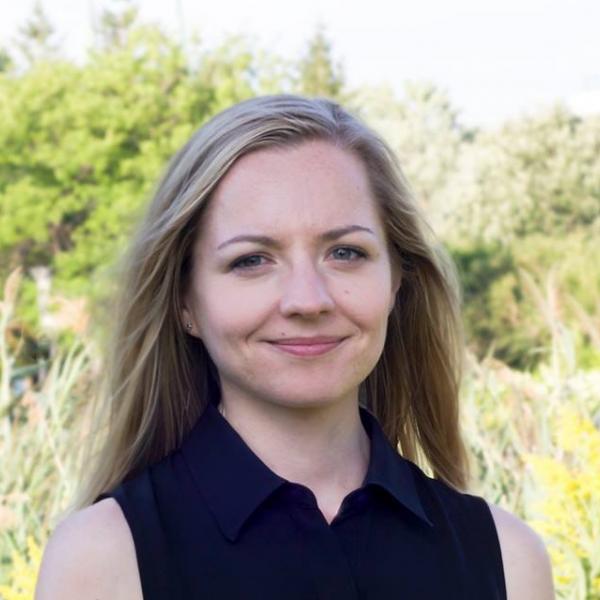
Aleksandra Kaminska
I'm an Associate Professor in media studies, media arts, and research-creation at the Université de Montréal. I work primarily at the intersection of media aesthetics, material and visual cultures, and history and philosophy of science and technology. I’m particularly interested in my current research in print and paper histories, technologies, and practices.
I’m currently working on a book called High-Tech Paper: Security Printing and the Aesthetics of Trust, a historical and theoretical study of security printing and document aesthetics that investigates the material protocols of identification, authentication, and recognition.
I’m also co-directing a collaborative project on sleep. The Sociability of Sleep is an interdisciplinary research-creation project exploring the epistemologies and equities of sleep. We are interested in both the everyday and the exceptional experiences of sleep and its disturbances. Our approach is rooted in art-science experimentation, collaboration, prototyping, and various forms of “critical making” that integrate and engage with qualitative or quantitative research data. We aim for interventions into sleep in art, design, media, and performance to generate novel sleep situations that can enrich knowledge, understanding, and normative treatment of sleep conditions, as well as the collective care of all sleepers.
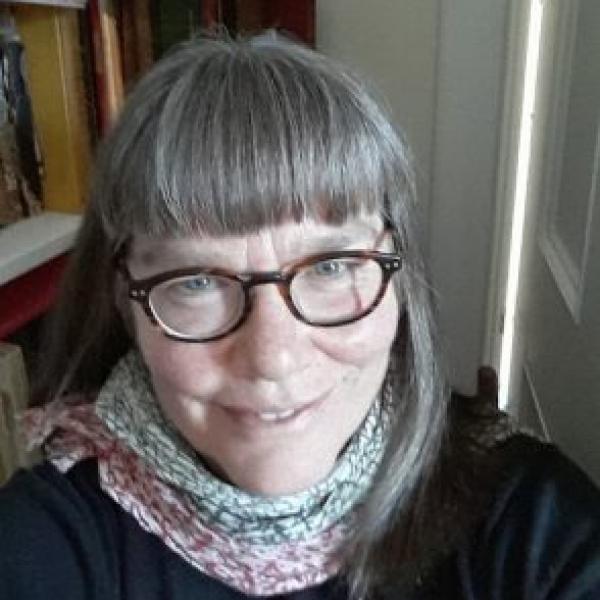
Katherine Kasirer
For over 30 years Senior Librarian Katherine Kasirer has worked at the National Film Board of Canada where she maintains a traditional library for employees, manages information about the film collection and provides research services for NFB filmmakers.
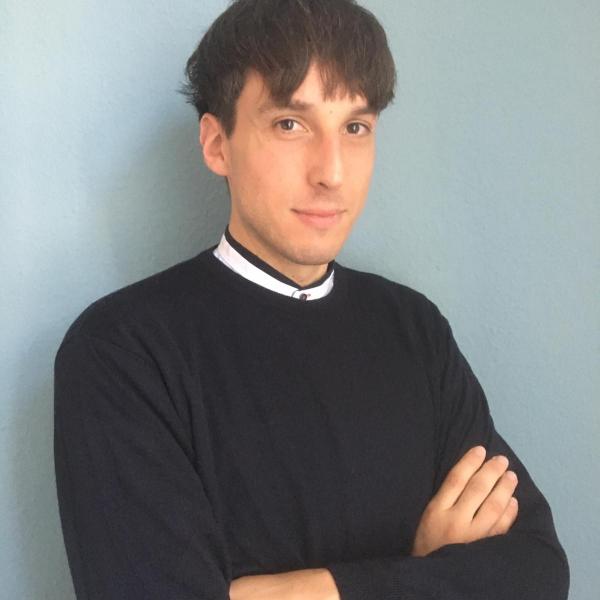
Philipp Dominik Keidl
Philipp Dominik Keidl is Assistant Professor of Screen Media in Transition in the Department of Media and Culture Studies at Utrecht University. He was a postdoctoral fellow in the Graduate Research Training Program “Configurations of Film” at Goethe University from 2019 to 2022. His research on fandom, media and material culture, and film heritage has been published in journals including JCSM: Journal of Cinema and Media Studies, Journal of Popular Culture, Film Criticism, The Moving Image, and American Behavioral Scientist. Philipp has also co-edited volumes on film archiving, the COVID-19 pandemic, and history-making as fan practice.
Patrick Keilty
Patrick Keilty is Associate Professor in the Faculty of Information and Cinema Studies Institute at the University of Toronto. He is director of the GLAM Incubator, a collaboration between the Faculty of Information and the Knowledge Media Design Institute. Professor Keilty’s research interests can be divided into two areas: the politics of digital infrastructures in the sex industries and the materiality of sexual media. He has published on embodiment and technology, data science, the history of technology, cataloging, archives, design and experience, graphic design, temporality, and sexual taxonomies. His work spans visual culture, sexual politics, science and technology studies, media studies, information studies, political economy, critical theory, and theories of gender, sexuality, and race. His research projects have been generously supported by multiple grants from the Social Sciences and Humanities Research Council (SSHRC). He is the editor or coeditor of Handbook of Adult Film and Media (Intellect 2025), Queer Data Studies (University of Washington Press 2023), and Feminist & Queer Information Studies Reader (Litwin 2013). He is currently writing a monograph about the politics of technology in the sex industries.
He was previously co-chair of the Adult Film and Media SIG in the Society for Cinema and Media Studies (SCMS) from 2020 – 2023, archives director of UofT’s Sexual Representation Collection from 2018 – 2023, and co-lead editor for Catalyst: Feminism, Theory, Technoscience from 2017 – 2019. For his work with Catalyst, he was a co-recipient of the 2020 Society for Social Studies of Science (4S) Infrastructure Award. In 2017, he was the co-recipient of The J. Franklin Jameson Archival Advocacy Award from the Society of American Archivists as a co-organizer of “Guerrilla Archiving,” an effort to save U.S. environmental data. In addition to his primary appointments, Professor Keilty is a faculty member at University College, affiliated with the Women and Gender Studies Institute, and member of the Technoscience Research Unit.
Professor Keilty teaches courses on technology studies, digital theory, feminist and queer studies, information infrastructures, and cinema studies. He holds a PhD in Information Studies, concentration in Women’s Studies (now Gender Studies), from the University of California, Los Angeles. He has lived in Toronto since 2012, and is originally from Alta Loma, California. Prior to academia, he worked in libraries and archives in Los Angeles, Washington, DC, and London, UK.
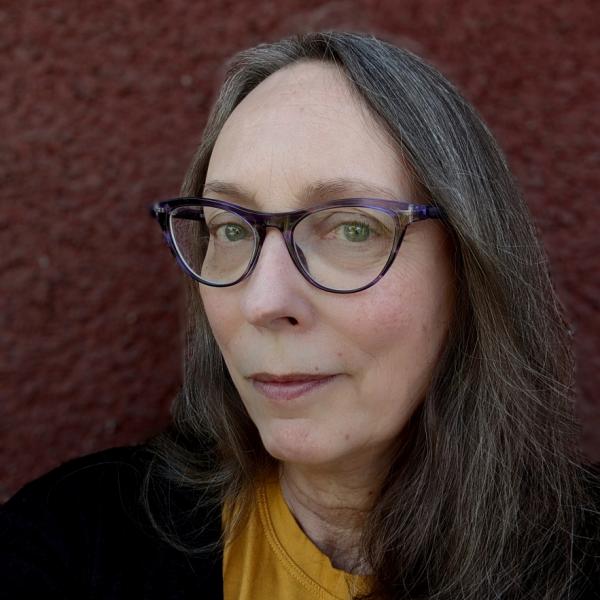
Karen Knights
Karen Knights is Manager of the Crista Dahl Media Library & Archive (CDMLA) and Development Officer at VIVO Media Art Centre (2013-present). She’s committed to the preservation and development of VIVO’s collection and oversees the CDMLA’s digitization projects of original media (most recently the Women’s Labour History Project Oral Histories; Celebration ’90 Gay Games III; Gayblevision community cable program). Previously, Knights was active in the artist-run community as a librarian, video art distributor, curator, and anti-censorship activist (1984-2000). As an independent curator and critic, she has completed several historical surveys of archives held by Canadian ARCs and contributed to solo exhibition catalogues for Sara Diamond and Jin-me Yoon. Knights is a Board member of the Audio-Visual Heritage Association of B.C.
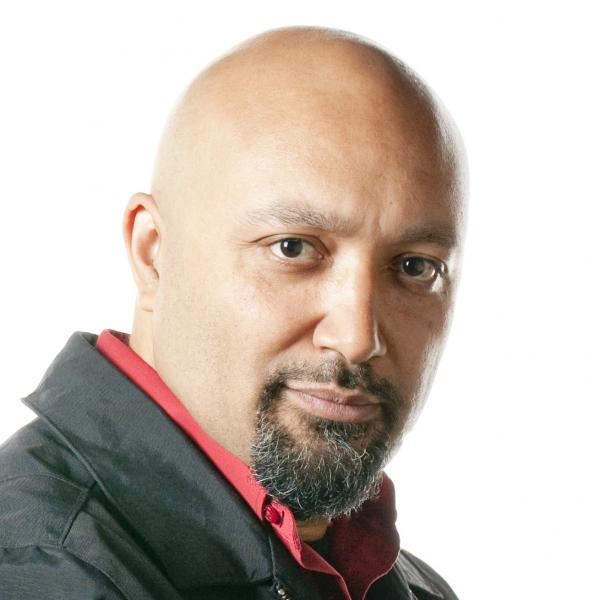
Jason Lewis
Jason Edward Lewis is a digital media poet, artist, and software designer. He founded Obx Laboratory for Experimental Media, where he directs research/creation projects exploring computation as a creative and cultural material. Along with the artist Skawennati, he co-directs Aboriginal Territories in Cyberspace, Skins Workshops on Aboriginal Storytelling and Video Game Design, and the Initiative for Indigenous Futures. Lewis is deeply committed to developing intriguing new forms of expression by working on conceptual, critical, creative, and technical levels simultaneously. He is the Concordia University Research Chair in Computational Media and the Indigenous Future Imaginary, as well as Professor of Computation Arts at Concordia University, Montreal. Born and raised in northern California, Lewis is Cherokee, Hawaiian, and Samoan.
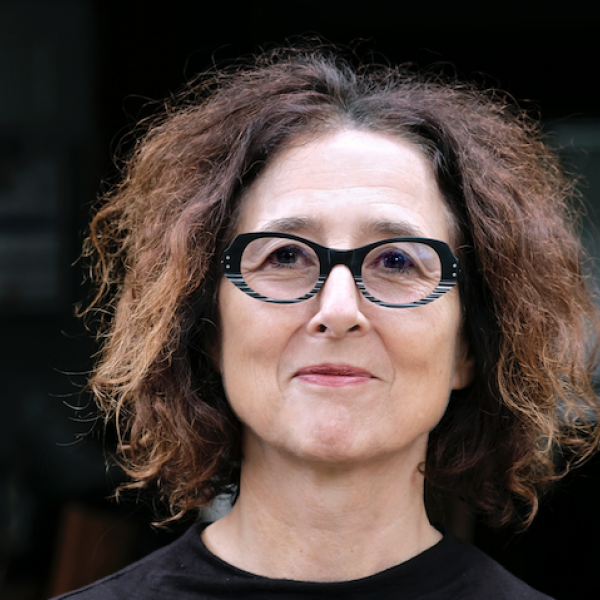
Brenda Longfellow
Brenda teaches in the Department of Cinema and Media Arts at York University and has published extensively on documentary, feminist film theory, and Canadian and Québec cinema. Her documentaries have been screened and broadcast internationally winning awards including Best Cultural Documentary for Tina in Mexico (2002) at the Havana International Film Festival, a Canadian Genie for Shadowmaker/Gwendolyn MacEwen, Poet (1998), and the Grand Prix at Oberhausen for Our Marilyn (1988).
Her work has included feminist archival projects as well as a series of short films, and a television documentary exploring the tenacity of fossil fuel addiction. Her interactive documentary, Offshore (2012) is available at http://offshore-interactive.com. She is currently working on a co-created documentary project and installation with formerly incarcerated women in Vancouver.
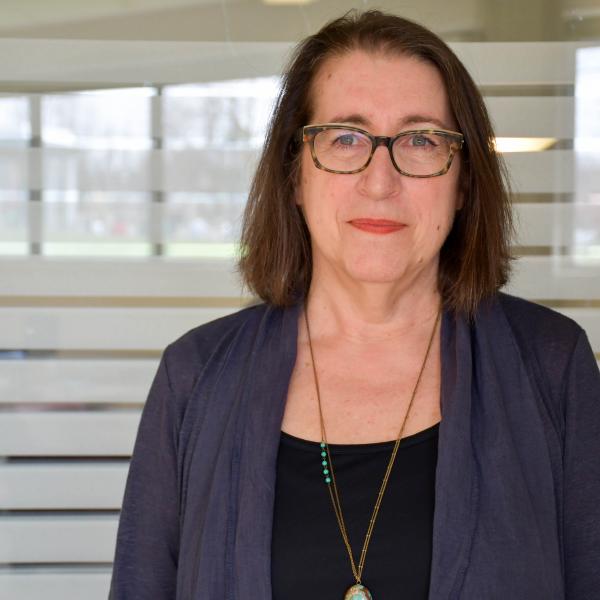
Susan Lord
Susan Lord is Professor in the Department of Film and Media at Queen's University and Director of the Graduate Program in Cultural Studies. She is the Director of the Vulnerable Media Lab (with Dylan Robinson and Rosaleen Hill). With a background in feminist and critical theory, her research has been dedicated to the histories of vulnerable media and in the remediation of these histories through curatorial and cultural events. These projects are necessarily collaborative, engaging with other researchers, cultural producers, policy and social actors to advance citizenship practices, expand the civic spaces, and decolonize the lands on which we live and work.
Her publications include two recent special issues of PUBLIC: Archive/Counter Archives and Havana (http://www.publicjournal.ca/issues/). A book on the Afro-Cuban filmmaker Sara Gómez is forthcoming in 2019. Other books include Killing Women: Gender, Violence and Representation (with Annette Burfoot); New World Coming: The Sixties and the Shaping of Global Consciousness (with K. Dubinsky, et al); Fluid Screens/Expanded Cinema (with Janine Marchessault).
Michelle Lovegrove Thomson
Michelle Lovegrove Thomson is the Senior Manager of the TIFF Film Reference Library, where her focus is on education, film preservation, and public services. In June 2019, Michelle curated the exhibition: “Film Farm: 25 Years of the Independent Imaging Retreat” at TIFF, celebrating and documenting the legacy of handmade filmmaking in Canada. She holds a BFA in Film Production from York University, and Master of Arts in English from the University of Alberta, and a Master of Information from the University of Toronto iSchool. She attended the Northern Exposure to Leadership Institute (NELI) in 2015, sits on the OLA Special Libraries Committee, and planned the 2019 OLA Super Conference Special Libraries Section.
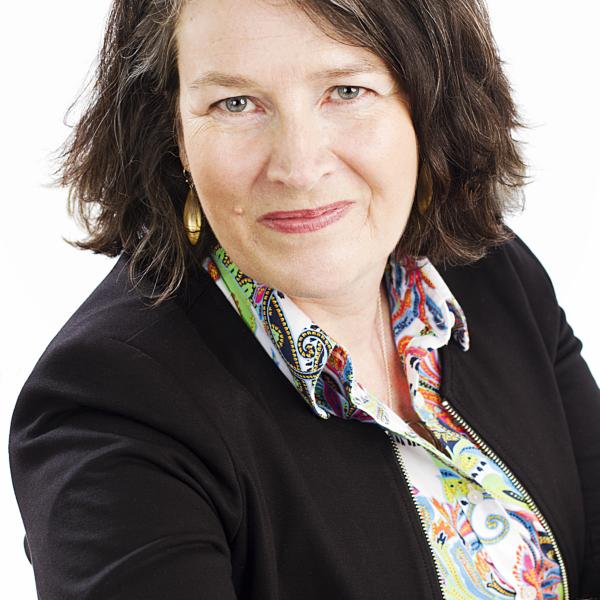
Mary Elizabeth Luka
Dr. Mary Elizabeth (“M.E.”) Luka is Assistant Professor of Arts & Media Management at the Department of Arts, Culture, Media (UTSC), cross-appointed to the Faculty of Information, University of Toronto. Dr. Luka is an award-winning scholar, policy maker, activist, and digital media maker for the arts and creative economy, broadcasting and telecommunications. She studies co-creative and collaborative modes of creative production and distribution in the digital age, to investigate how arts, culture, media, and civic sectors are networked together.
Dr. Luka has worked with 100+ cultural organizations as a consultant, staff member or advisor. She is Past Chair of the Board for Arts Nova Scotia, and past member of the Creative Nova Scotia Leadership Council, NSCAD University’s Board of Governors, and the Provincial and Territorial Advisory Group of the Cultural Human Resources Council. She is a founding member of research-creation and public art walking group, Narratives in Space + Time Society (NiS+TS).
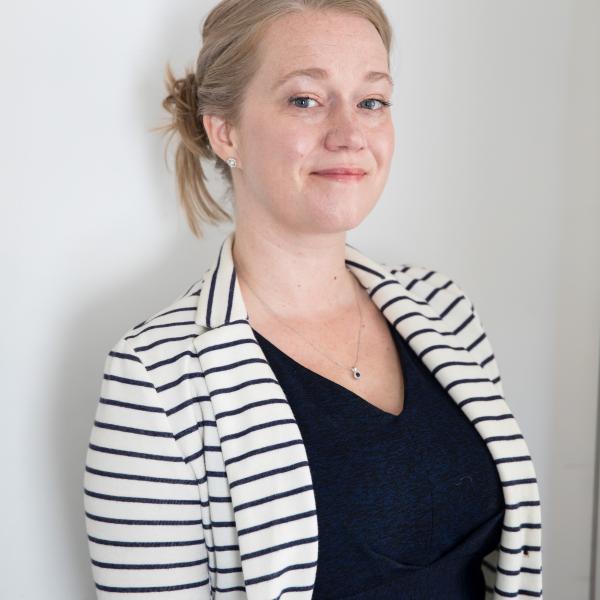
Shana MacDonald
Dr. Shana MacDonald is an Associate Professor in Communication Arts at the University of Waterloo. Her interdisciplinary research examines feminist, queer, and anti-racist media activisms within social and digital media, popular culture, cinema, and contemporary art. Dr. MacDonald runs the online archive Feminists Do Media (Instagram: @aesthetic.resistance). She is co-editor of Networked Feminist Activisms: Digital Practices and Activist Assemblies (Lexington Press 2021).
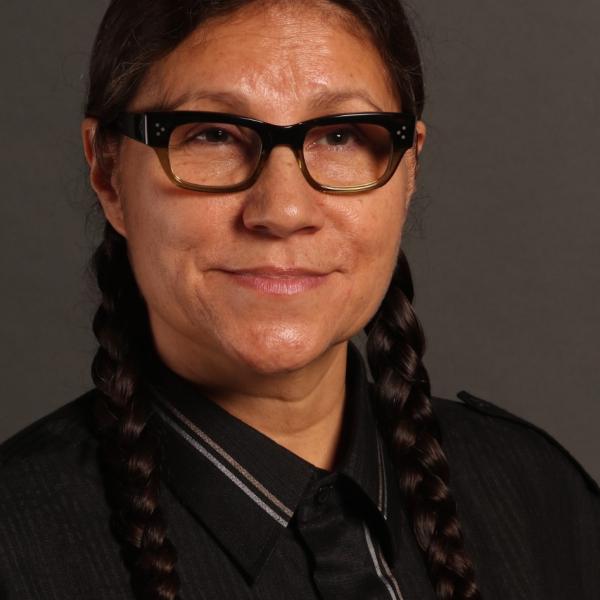
Dolleen Tisawii'ashii Manning
Dolleen Tisawii’ashii Manning is a Queen's National Scholar in Anishinaabe Language, Knowledge and Culture (ALKC), Department of Philosophy and Interdisciplinary Graduate Program in Cultural Studies at Queen's University. A member of Kettle and Stoney Point First Nation and an interdisciplinary artist and scholar, she received a PhD from the Centre for the Study of Theory and Criticism at Western University (2018), and holds graduate degrees in critical theory (MA, Western, 2005), and in contemporary art (MFA, Simon Fraser, 1997). She points to her early childhood grounding in her mother’s Anishinaabe cultural lessons as her primary philosophical influence and source of creativity. Manning has wide-ranging interests in Anishinaabe ontology, critical theory, phenomenology, and art, investigating questions of Indigenous imaging practices, mnidoo interrelationality, epistemological sovereignty, and the debilitating impact of settler colonial logics. Her investment in archives stem from her family's land claim activism and the function of the archive in the colonial state, along with their counter archival counter narrative potentialities.

Janine Marchessault
Janine Marchessault is a Professor of Cinema and Media Arts at York University, where she was the Canada Research Chair in Art, Digital Media, and Globalization (2003-2013). Dr. Marchessault is the author of ten monographs and edited volumes, and over fifty articles in books, journals, and catalogues devoted to cinema, new media, and contemporary art. She is a past President of the Film Studies Association of Canada and a Fellow of the Royal Society of Canada. Her recent monograph is Ecstatic Worlds: Media, Utopias, Ecologies (2017 MIT Press) and her monograph in preparation is Archival Imaginary: Expanded Memory. She is the Principal Investigator of Archive/Counter-Archive: Activating Canada’s Moving Image Heritage.
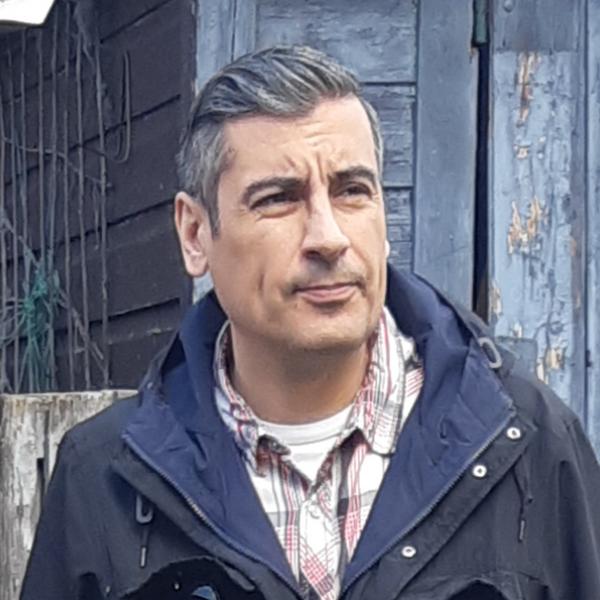
Jean-Pierre Marchant
Jean-Pierre (JP) Marchant is a recent graduate of the MFA program in film at York University. His films, which span multiple genres, are concerned with things that grow in the ‘spaces in between’: between capitalist promises and suburban disappointments, urban landscapes and their hinterlands, personalities in conflict, and diasporic lives and the memories left behind. His most recent work uses found and archival footage, his parents’ home movies, narration, and remediation to tell stories that complicate conventional narratives of trauma, Latin American migration, and exile.
He is the newly minted Director of Operations of the “Cinemobilia” mobile media digitization lab, a CFI-funded project through York University and A/CA.
His works have screened and won awards at several international festivals and galleries including aluCine Latin Film & Media Arts Festival (Toronto), Photophobia (Hamilton, ON), Video Fever (Toronto), the Calgary International Film Festival, WNDX, the Winnipeg/Montreal/Toronto Underground Film Fests, Antimatter [Media Art] (Victoria), International Portrait Film Festival (Sofia, Bulgaria), Galvanized Suns (Toronto), Northwestfest (Edmonton), and Trap\Door Artist Run Centre.
Cait McKinney
Cait McKinney is Assistant Professor of Communication at Simon Fraser University, the author of Information Activism: A Queer History of Lesbian Media Technologies (Duke, 2020), and coeditor of Inside Killjoy's Kastle: Dykey Ghosts, Feminist Monsters, and other Lesbian Hauntings (UBC, 2019). McKinney is interested in how queer social movements use digital technologies to build alternative information infrastructures. Their current research is on activist responses to early online content regulations; the intertwined histories of AIDS Activism and digital technologies; and the ways sexuality has been used to explain data and databases since the mid 20th century. McKinney's ongoing collaborations with the artist Hazel Meyer explore shared attachments to queer histories through writing, performance, video, and other archival interventions.
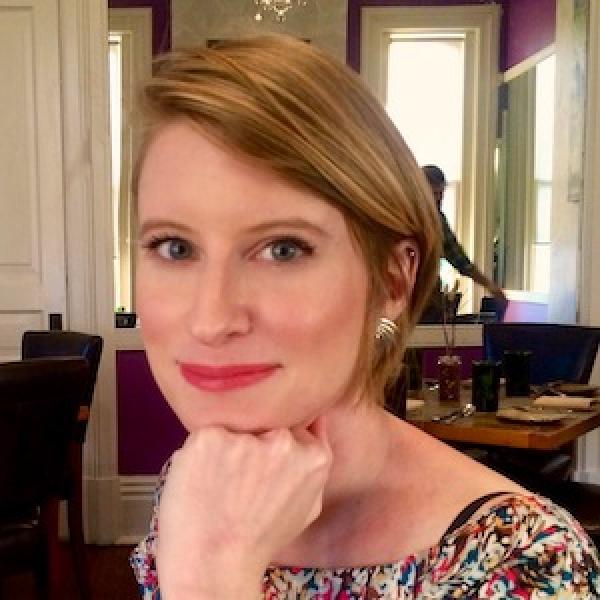
Aimee Mitchell
Dr. Aimée Mitchell (she/her) is currently the Research Officer for the School of Art, Media, Performance & Design at York University. She is the former Project Manager of Archive/Counter-Archive. She holds a PhD in Communication and Culture from York-X University. Her dissertation explored the politics and practices of audiovisual archives in Canada, and more specifically, the importance of DIY archiving practices in its various forms. She held a MITACS Post-Doctoral Fellow at York University, where her research focused on the early history of IMAX, and the reconstruction of this history through traces from personal fonds, and counter archives. Aimée is the former Distribution and Collections Manager at the Canadian Filmmakers Distribution Centre, Canada’s largest collection of independent artisanal film. She was an archival researcher and contributor to the book Reimagining Cinema: Film at Expo 67 (MQUP 2014). Aimée is an independent media art programmer, a current board member of the Liaison of Independent Filmmakers Toronto and the8fest small-gauge film festival and was a founding member for the Toronto Queer Film Festival. She is an advocate for audiovisual media makers across formats and gauges big and small.

Paul Moore
Paul Moore is Associate Professor of Communication and Culture at Ryerson University. Overall, his research argues that amusement and leisure help constitute modern publics by providing spaces, rhetorics, and logics for collective gathering. He has studied the history of early cinema publicity and exhibition across Canada and North America, with a focus on rural spaces "in between," and with special attention to how viewing publics are premediated as reading publics through news and advertising.
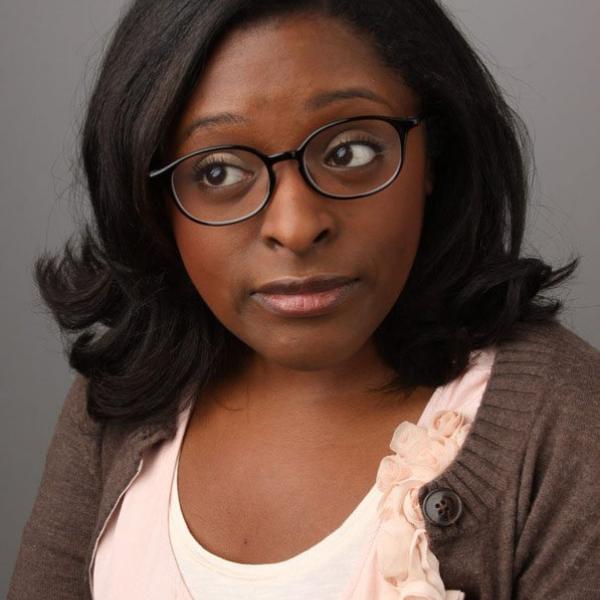
Kristin Moriah
Kristin Moriah is an Assistant Professor of African American Literary Studies at Queen’s University. Her research interests include Sound Studies and Black feminist performance, particularly the circulation of African-American performance and its influence on the formation of national identity.
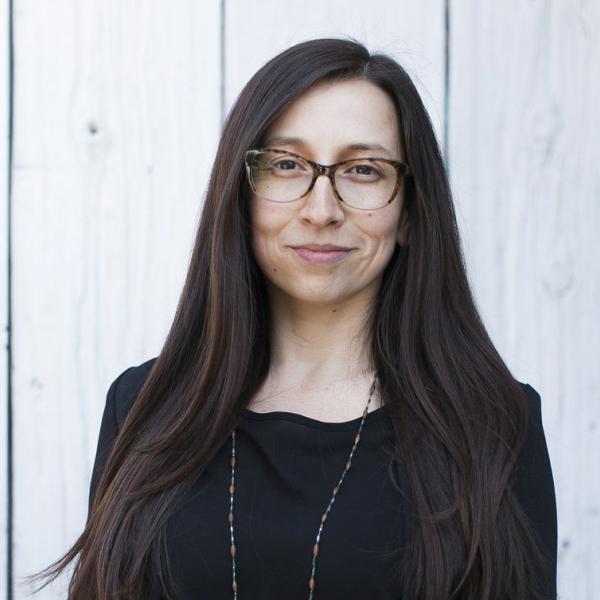
Suzanne Morrissette
Suzanne Morrissette is a Métis artist, curator, and scholar from Winnipeg who is currently based out of Toronto. Her research in the areas of Indigenous histories of resistance, and the development of liberal political philosophy in Canada have come together in the form of artworks, exhibitions, articles, and her forthcoming book which examines the progression of Indigenous relations in Canada since the early 1900s against the context of growing inclusion in the arts. She has taught liberal arts and studio courses at various universities since 2011, and currently works as Assistant Professor at Brock University in the Department of Visual Arts.
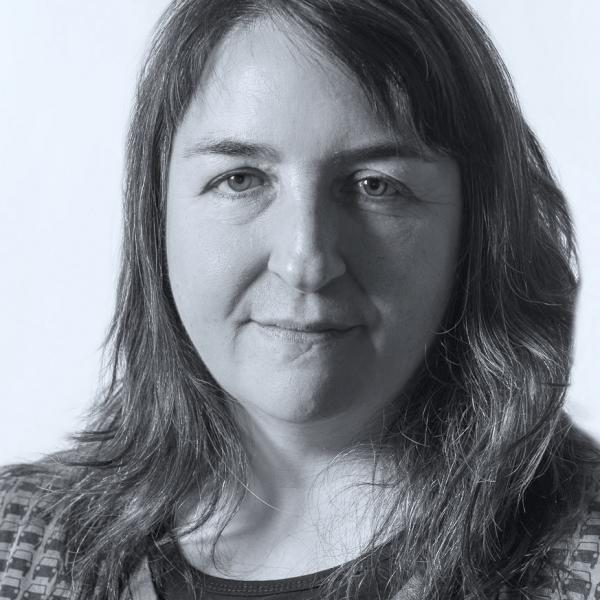
Lisa Myers
Lisa Myers is a member of Chimnissing, Beausoleil First Nation. She works as an independent curator, artist and also as an Associate Professor in the Faculty of Environmental and Urban Change at York University. Her research encompasses both an art and curatorial practice. Through printmaking, stop-motion animation and performance she considers spaces of sustenance. She has exhibited her artwork in venues including the Art Gallery of Ontario, Art Gallery of Peterborough, and Queens Museum. Recent curatorial projects include touring exhibitions: Beads, they’re sewn so tight (2018); Carry Forward (2017); and wnoondwaamin | we hear them (2016). Her writing has been published in many exhibition publications, in addition to journals and art periodicals such as Senses and Society, C Magazine and Inuit Art Quarterly. Myers has an MFA in Criticism and Curatorial practice from OCAD University. She is Toronto and Port Severn, ON based.
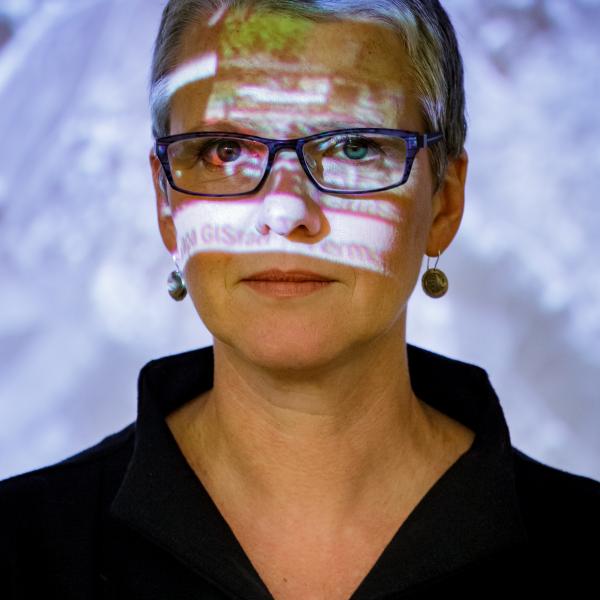
Dorit Naaman
Dorit Naaman is a documentarist and film theorist from Jerusalem, and a professor of Film and Media and Cultural Studies at Queen’s University. In 2016 she released an innovative interactive documentary, Jerusalem, We Are Here, offering a model for digital witnessing. The project creates a novel platform that documentarist Liz Miller claimed “will become a ‘go to’ reference for educators working on the intersections of new media, oral history, geography and more.” Jerusalem, We Are Here was presented to live audiences thirty times, won two awards, and was written about in half a dozen languages.
Dorit’s publications focus on Israeli and to a lesser extent Palestinian cinemas and media (primarily from post-colonialist and feminist perspectives).
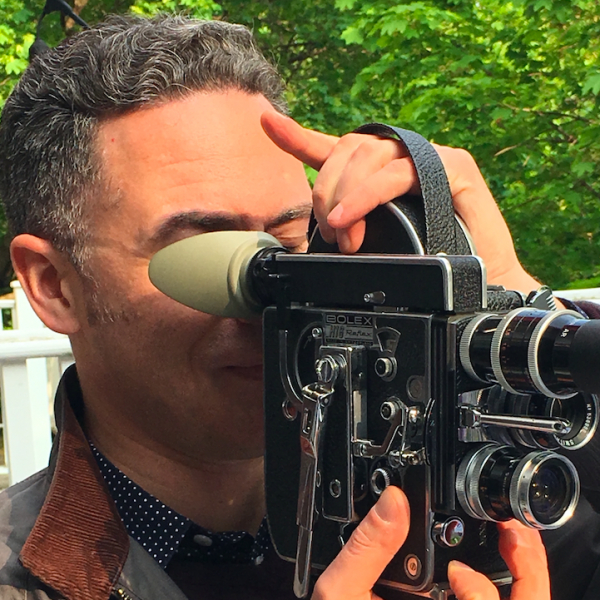
Louis Pelletier
Louis Pelletier holds a PhD in Communication from Concordia University. He has completed a SSHRC-funded postdoctoral research on early fiction film production in Quebec at Université de Montréal, where he currently holds a postdoctoral appointment with the International Research Partnership Technès. He is research coordinator of the Canadian Educational, Sponsored and Industrial Film project (Media History Research Center, Concordia University), and has published on early and silent cinema, film exhibition, useful cinema, amateur cinema, experimental cinema and film technology in many journals, including Film History, The Moving Image, 1895, The Canadian Journal of Film Studies, Found Footage, and The Journal of Film Preservation. He is in the process of completing a manuscript entitled The Fellows Who Dress the Pictures: Montreal Film Exhibitors in the Days of Vertical Integration, 1912-1952 for McGill-Queen’s University Press.
Julianne Pidduck
Julianne Pidduck is associate professor in the Communication department at the Université de Montréal. Her research explores representations of gender and sexuality through the moving image, and more broadly across mediated public discourse. Author of Contemporary Costume Film (2004), she has published widely in Canadian and international academic journals. Her current project, Shadowplay and Afterimages, examines LGBTQ2+ produced film, video, and photography in Montréal from the 1950s until the 1990s as an archive of LGBTQ2+ lives and experience. As part of this project, she recently edited a special section of the online journal Jump Cut, returning to mythic Quebec filmmaker Claude Jutra in light of the 2016 allegations of pedophilia. Member of the core group of Queer Media Database Canada-Québec Project, she is presently co-curating an installation exploring 1970s Montréal lesbian bar culture and social life entitled, After Hours at Madame Arthur, to take place at Montréal’s Never Apart Centre from June-September 2019.
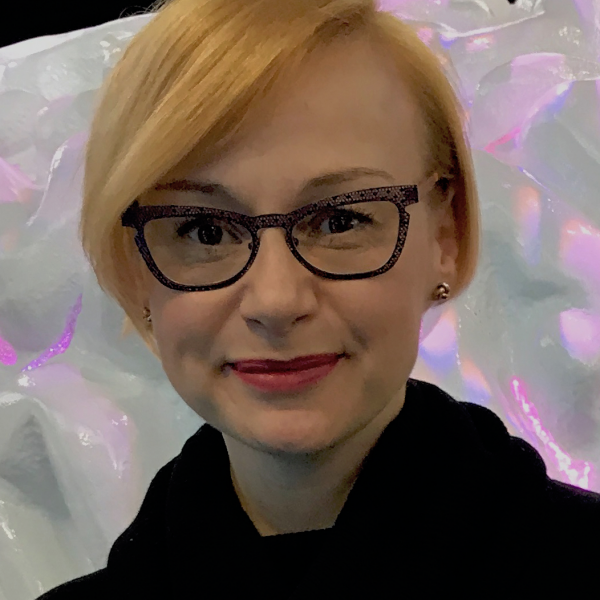
Izabella Pruska-Oldenhof
Dr. Izabella Pruska-Oldenhof is a Toronto-based filmmaker and scholar. Her interests as an artist and scholar are interdisciplinary, and her works often probe intersections of art, body, and technology. Izabella’s films and installations have been recognized with awards, commissions, and public grants, and have been included in over 150 public presentations at major international film festivals, art museums, and centres in Canada and abroad, most notably: TIFF, Toronto; IFFR, Rotterdam; Centre George Pompidou, Paris; Guggenheim Museum, New York; Museum of the Moving Image, Astoria; and ZKM, Karlsruhe. Izabella’s writings on art, cinema, technology and culture, have appeared in academic journals, and in anthologies on media arts and on screendance, including chapters in The Oxford Handbook of Screendance Studies (2016) and Dance’s Duet with the Camera: Motion Pictures (2016). She is Associate Professor in Ryerson University’s School of Image Arts, and a member of three graduate programs (Communication and Culture, Documentary Media, and Film + Photographic Preservation Collections Management).
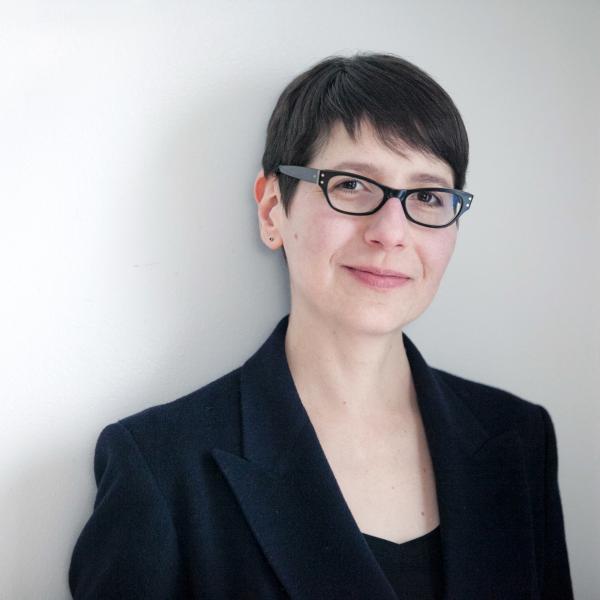
Lilian Radovac
Dr. Lilian Radovac is a media and cultural historian and the director of the Alternative Toronto digital community archive project. Her research explores twentieth century urban history with a focus on sound, space and social movements, and has appeared in American Quarterly, Radical History Review, Communication and Critical/Cultural Studies and Continuum. As a community archivist, Lilian uses digital tools to intervene in established historical narratives, curating sounds, images and texts to tell stories about people and communities that remain in the margins of existing accounts. She’s also committed to building memory infrastructures that enable them to tell their own.
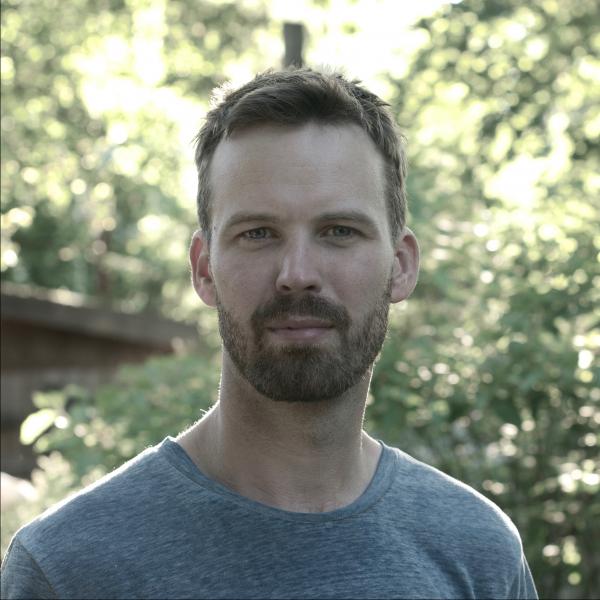
Ryan Randall
Ryan Randall is a cinematographer, technician, and educator who graduated from the Ontario College of Art & Design in 2002 with a major in Integrated Media. An Associate of the Canadian Society of Cinematographers for the past decade he actively shoots commercials, documentaries, shorts, and media arts projects. Ryan is also a Film and Media Technician for over 15 years between OCAD University and at Queen’s University as a Senior Technician and the Technical Supervisor for the Vulnerable Media Lab.
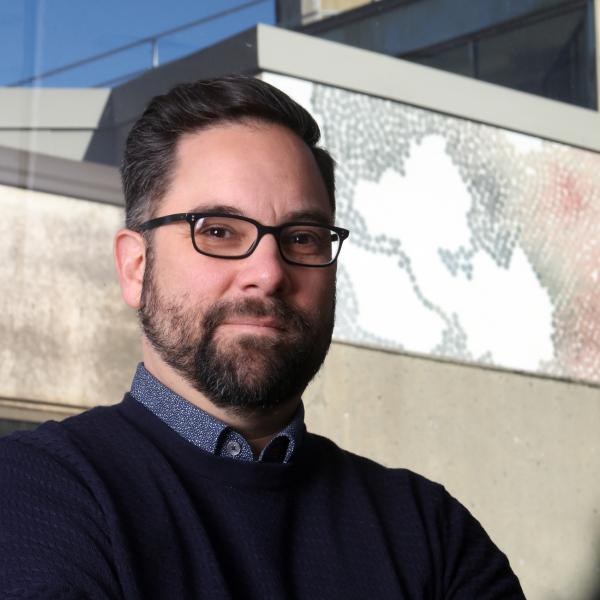
Dylan Robinson
Dylan Robinson is a xwélmexw (Stó:lō/Skwah) artist, curator and writer. From 2015-2022 he was the Canada Research Chair in Indigenous Arts at Queen’s University. Dr. Robinson’s curatorial work includes the international touring exhibition Soundings (2019-2025) co-curated with Candice Hopkins. His current research project xoxelhmetset te syewa:l, Caring for Our Ancestors, involves working with Indigenous artists to reconnect kinship with Indigenous life incarcerated in museums.
His book, Hungry Listening (University Minnesota Press, 2020), examines Indigenous and settler colonial practices of listening, and was awarded best first book for the Native American and Indigenous Studies Association, Canadian Association for Theatre Research, and the Labriola Centre American Indian National Book Award. Other publications include the edited volume Music and Modernity Among Indigenous Peoples of North America (Wesleyan University Press, 2019); and Arts of Engagement: Taking Aesthetic Action in and Beyond the Truth and Reconciliation Commission of Canada (Wilfrid Laurier University Press, 2016). As co-chair of the Indigenous Advisory Council for the Canadian Music Centre, he is currently leading a process for the reparation and redress of music that appropriates Indigenous song, and misrepresents Indigenous culture.

Shelly Rosenblum
Shelly Rosenblum is Curator of Academic Programs at the Morris and Helen Belkin Art Gallery (the Belkin). Inaugurating this position at the Belkin, Rosenblum’s role is to develop programs that increase myriad forms of civic and academic engagement at UBC, the wider Vancouver community and beyond. Rosenblum received her PhD at Brown University and has taught at Brown, Wesleyan and UBC. Her awards include fellowships from the Center for the Humanities, Wesleyan University and a multi-year Presidential Postdoctoral Research Fellowship, Department of English, UBC. She was selected for the Summer Leadership Institute of the Association of Academic Museums and Galleries at the Kellogg School of Management, Northwestern University (2014). Her research interests include issues in contemporary art and museum theory, discourses of the Black Atlantic, critical theory, narrative and performativity. Her teaching covers the 17th to the 21st centuries. She remains active in professional associations related to academic museums and cultural studies, attending international conferences and workshops, and recently completing two terms (six years) on the Board of Directors at the Western Front, Vancouver, including serving as Board President. At UBC, Rosenblum is an Affiliate of the Peter Wall Institute for Advanced Studies.
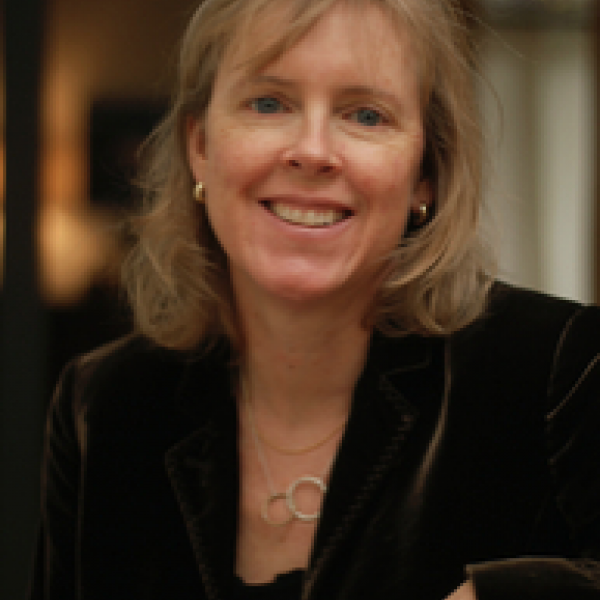
Catherine Russell
Catherine Russell is Distinguished Professor of Film Studies at the Mel Hoppenheim School of Cinema at Concordia University in Montreal, Canada. She is the author of five books, including Experimental Ethnography: The Work of Film in the Age of Video (1999), and Archiveology: Walter Benjamin and Archival Film Practices (2018). She has published articles on experimental film, Japanese film, and Hollywood cinema in Cinema Journal, Camera Obscura, Criticism, Visual Anthropology, Scope, Transformations, Framework, and she is a contributing writer for Cineaste Magazine.
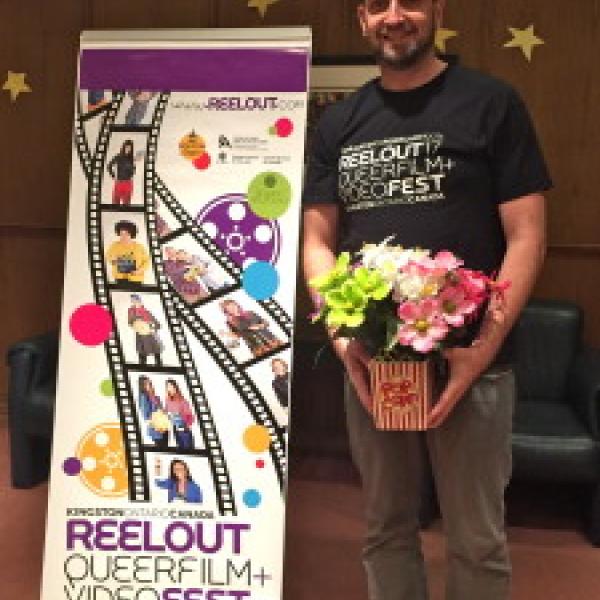
Matt Salton
Matt Salton has been an arts administrator, curator and film festival programmer since 2000. He has been the festival director of Calgary's FairyTales Queer Film Festival and is the current executive director of the Reelout Arts Project Inc. (Reelout Queer Film Festival) in Kingston, Ontario. Matt revels in combining artistic practice and social justice activism. He is an honours graduate from the Film and Media program at SAIT and has served on the MANO/RAMO board of directors, the City of Kingston Arts Advisory Committee and the Alberta Media Arts Alliance Society.
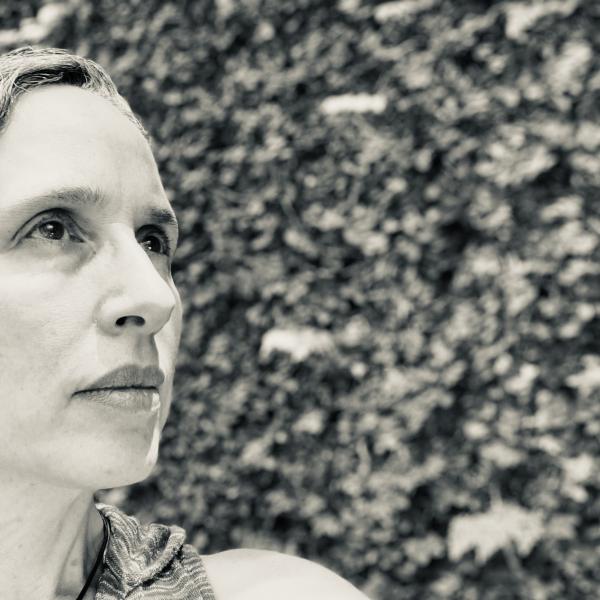
Elida Schogt
With over 20 years rooted in the media arts sector as a filmmaker, teacher, administrator and consultant, Elida brings expertise in mentorship, advocacy, and leadership to the position of Executive Director of the Media Arts Network of Ontario (MANO). Elida is best known for “Zyklon Portrait,” her internationally-acclaimed short experimental documentary on matrilineal trauma. The late Peter Goddard, of the Toronto Star, described the 16mm collage piece–made with archival stills, footage and hand-painted imagery–as “elegantly haunting and perhaps the most visually lush film about the Holocaust ever made.” Elida has a PhD in practice-based visual arts from York University and an MA in Media Studies from the New School for Social Research in New York. She has built her understanding of anti-oppression and equity frameworks through her doctoral research grounded in feminism and intersectionality. She is actively working to extend this sensibility and sensitivity beyond her blind spots.
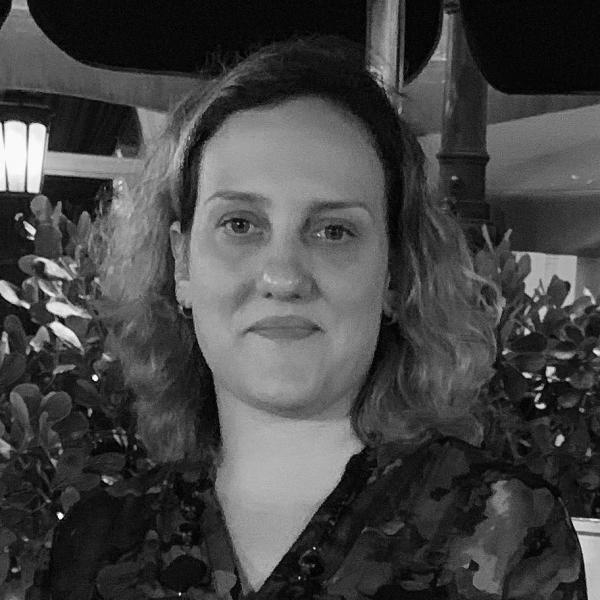
Verónica Sedano Alvarez
Verónica Sedano Alvarez holds both a Master's degree in Art History from the Université du Québec à Montréal (2019) and a Bachelor's degree in Art History from the University of Havana (2003). Her research, which focuses on the absence of Central American contemporary art in Latin American art historiography, received the Canada Graduate Scholarships-Master’s program from the SSHRC. In 2001, the University of Havana granted her the Alma Mater award for the most relevant contribution to the higher education. She taught Latin American Art History at the University of Havana from 2003 to 2008. Additionally, she collaborated with major institutions such as Thyssen-Bornemisza Art Contemporary (Vienna), Hayward Gallery (London, UK) and Mori Art Museum (Tokyo). From January to June 2019, she was coordinator of the visual art project Montréal ~ Habana: Rencontres en art actuel. Currently, she works as Communications and Special Projects Coordinator at Groupe Intervention Vidéo (GIV).
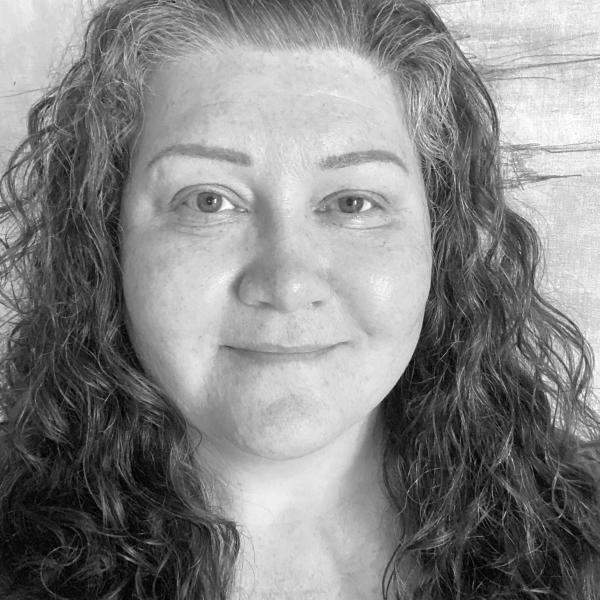
Victoria Sigurdson
Sigurdson has dedicated her career to empowering teaching, learning and research communities through the development of responsive university library services and collections. She is a graduate of York University’s Bachelor of Fine Arts (Visual Arts Studio) program and holds a master’s degree in Library & Information Studies from Dalhousie University.
In addition to an established history of collaborative projects with diverse stakeholders, her library experience includes visual materials management, reference and research services, digitization activities, accessibility services, as well as intellectual property and licensing consultation.
Her research focuses on library accessibility, specifically in relation to media materials. Current interests include the role of arts funding programs and media organizations in providing equitable access to media works, developing media accessibility curriculum, and how legislation shapes library accessibility services in the academic environment. Other topics of interest include the phenomenology of artmaking and creative spaces, analog and instant photographic processes, and olfactory art.
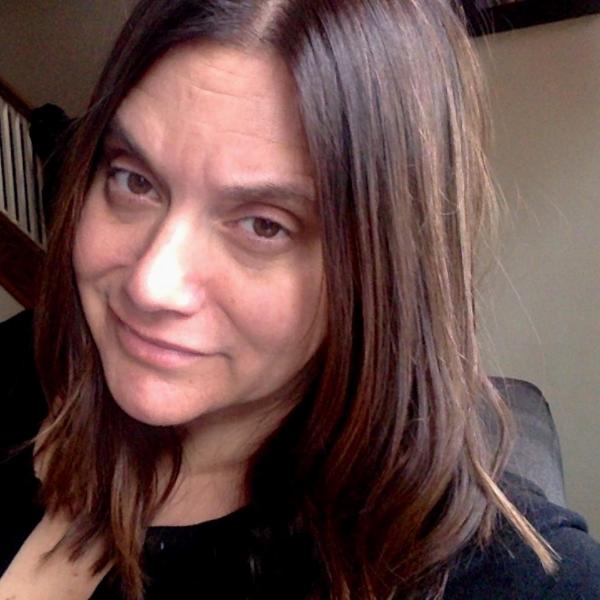
Lisa Sloniowski
Lisa Sloniowski has multiple roles at York University as a humanities librarian in the Scott Library, as a PhD candidate in Social and Political Thought, and as a faculty member in the Graduate Program in English. Her research examines the affective labour of librarians as knowledge and memory workers, from a feminist perspective. Her most current work explores the specific archival challenges posed by two special collections: the Barbara Godard library, and an archival collection of feminist pornography
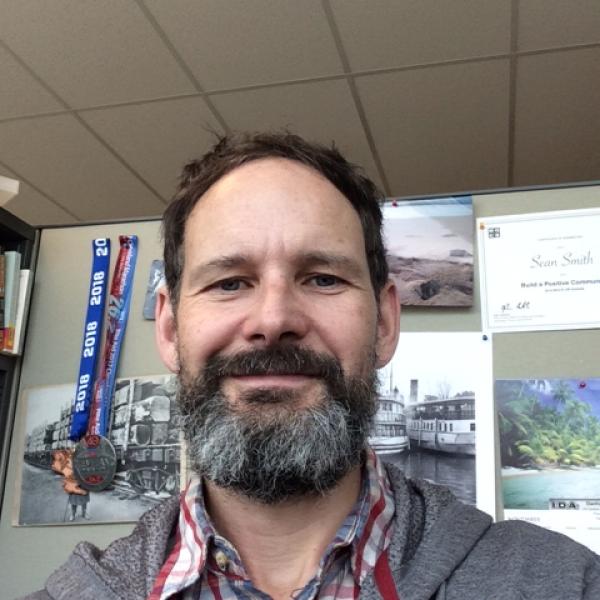
Sean Smith
Sean Smith is a Senior Archivist in the Collections Development and Management Unit at the Archives of Ontario. He previously held positions at the Clara Thomas Archives at York University and Library and Archives Canada. In total, he has been preserving and sharing history for almost 20 years. He is an active member of the archival community as well as a runner, a reader, and a father of two.
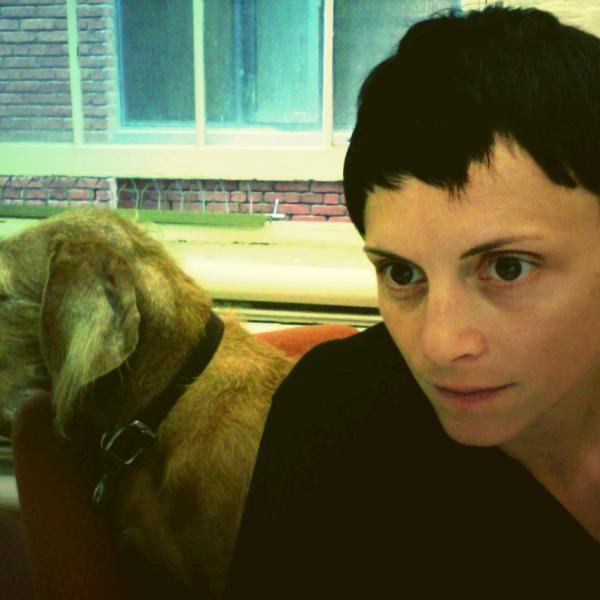
Genne Speers
Genne Speers is the Deputy Director of the CFMDC, one of Canada’s oldest artist run centres founded in 1967. The CFMDC is one of four member organizations of TMAC (Toronto Media Arts Centre). She is an advisory member of the TMAC board and serves on the boards of the Media Arts Network of Ontario and the Independent Media Arts Alliance. Genne holds a Masters of Cinema and Film Archiving from the University of East Anglia and is a PhD Candidate in Cinema and Media Studies at York University. Her current research concerns aerial images of violence and the interpretation and translation of instrumental aerial images within the context of the archive.
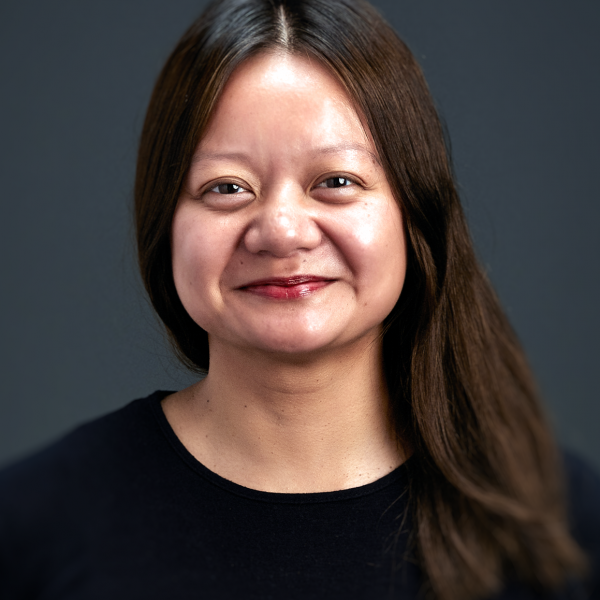
Leslie Supnet
Leslie is a Filipinx moving image artist and educator, who has worked with artist-run centres for over 12 years. She has taught extensively in the community as a facilitator, mentor and academic instructor, with service on artist-run Boards in Winnipeg and Toronto. Leslie has programmed artist-driven screenings at the Winnipeg Cinematheque, Pacific Cinematheque, Pleasure Dome and Plastic Paper: Winnipeg’s Festival of Animated, Illustrated and Puppet Film. Leslie’s artistic practice spans various media – animation, analog film/video, expanded drawing and design, with works screened at TIFF, International Film Festival Rotterdam, Image Forum Festival in Japan, Flaherty NYC and Kurzfilmtage Oberhausen amongst many others. She holds an MFA in Film Production (experimental stream) from York University.
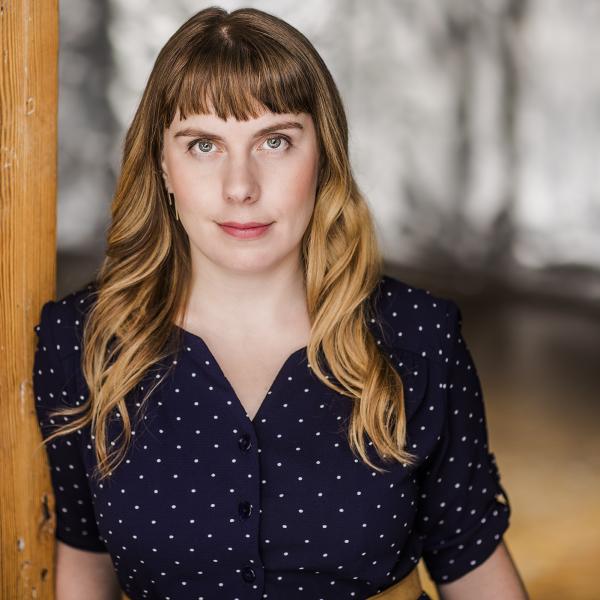
Raegan Swanson
Raegan serves as the Executive Director of The ArQuives, formerly The Canadian Lesbian and Gay Archives. She holds a BA from Collège universitaire de Saint-Boniface and a Masters of Information from the University of Toronto iSchool. She has worked as an archivist at Library and Archives Canada, the Truth and Reconciliation Commission of Canada, Aanischaaukamikw Cree Cultural Institute, and as the Archival Advisor for the Council of Archives New Brunswick. She is currently working on her PhD, focusing on the role of community archives in Inuit communities. She is a member of the Steering Committee on Canada’s Archives Taskforce to respond to the “Calls to Action” Report from the Truth and Reconciliation Commission and the co-chair of the Association of Canadian Archivists Indigenous Matters Working Group.

Carla Taunton
Dr. Carla Taunton is an Associate Professor in the Division of Art History and Contemporary Culture at the Nova Scotia College of Art and Design University (NSCAD) and an Adjunct Associate Professor in the department of Cultural Studies at Queen’s University. Taunton is a white-settler scholar whose areas of expertise include arts-based critique of settler colonialism, Indigenous arts and methodologies, contemporary Canadian art, museum and curatorial studies, as well as theories of decolonization, anti-colonialism, and settler responsibility. Her recent collaborative research projects include: The GLAM Collective, The Pilimmaksarniq/Pijariuqsarniq Project: Inuit Futures in Arts Leadership (2017), Archive/Counter-Archive: Activating Canada’s Moving Image Heritage (2018 - 2024), Transactive Memory Keepers (2016-ongoing); This is What I Wish You Knew: Urban Aboriginal Artists (2015-ongoing), and Theories and Methodologies for Indigenous Arts in North America (2014-ongoing). Her recent publications include “Performing Sovereignty: Forces to be Reckoned With” in More Caught in the Act (2016), and “Embodying Sovereignty: Indigenous Women’s Performance Art in Canada,” in Narratives Unfolding (2017). With Dr. Julie Nagam and Dr. Heather Igloliorte, she co-edited PUBLIC 54: Indigenous Art, and in 2017 with Igloliorte she co-edited a special issue of RACAR on Indigenous art histories.
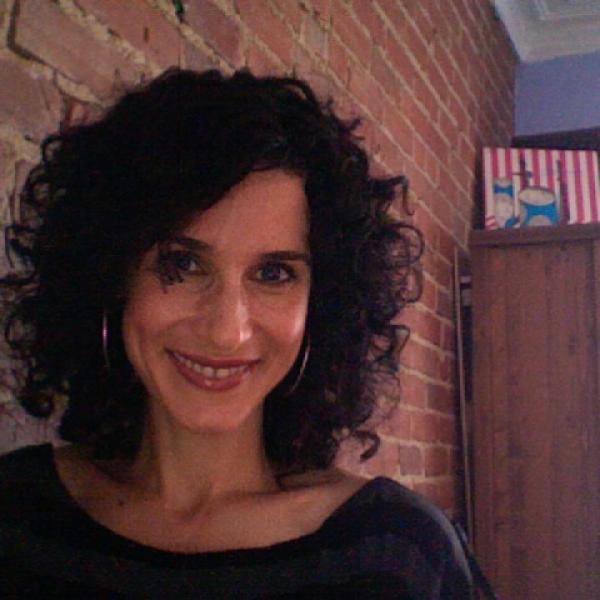
Alanna Thain
Alanna Thain is a professor of Cultural Studies and World Cinemas at McGill University, where she directs the Moving Image Research Laboratory and the Institute for Gender, Sexuality, and Feminist Studies. She is the author of Bodies in Suspense: Time and Affect in Cinema (University of Minnesota Press, 2017). Her current research includes Anarchival Outbursts on dance and the movement practices of post-digital cinema, and Cinema Out of the Box, a research-creation project around a mobile, bike powered cinema, and the global trend of outdoor cinemas.
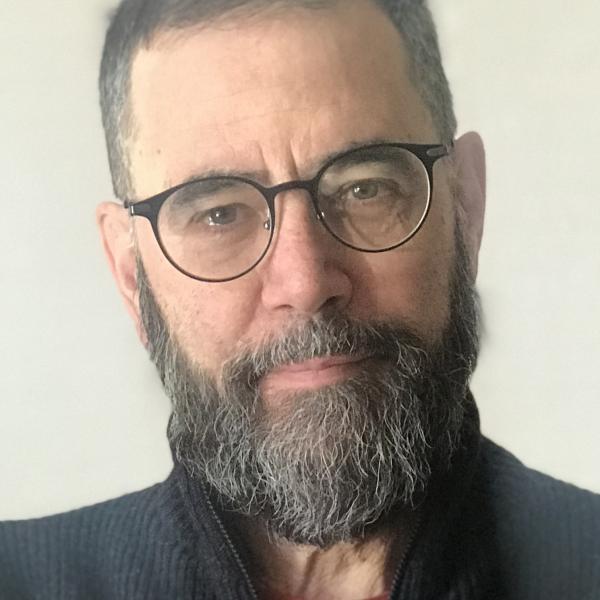
Kim Tomczak
Kim Tomczak is a multidisciplinary artist primarily known for his work in performance, photography, video, and photo/text work. Since 1983, he has worked exclusively in collaboration with Lisa Steele. They have received numerous grants and awards including the Bell Canada prize for excellence in Video Art, a Toronto Arts Award and in 2005, a Governor General’s Award for lifetime achievement in Visual & Media Arts.
Tomczak is a co-founder of Vtape and teaches at the University of Toronto in the Visual Studies program, Daniels Faculty of Architecture, Landscape and Design. Steele and Tomczak were awarded an Honorary Doctorate by the University of British Columbia (Okanagan) in 2009.
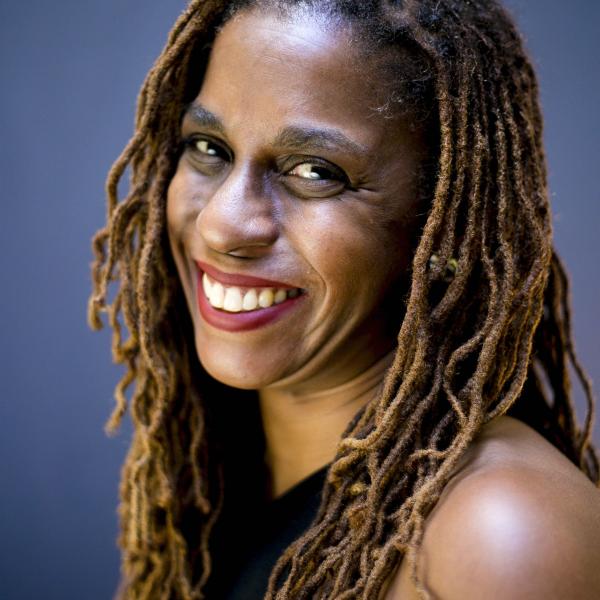
Nadine Valcin
Nadine Valcin is an award-winning filmmaker and media artist whose practice spans documentary, experimental and narrative film as well as installation and virtual reality. Her work explores questions of memory, identity and language. She holds a professional degree in architecture from McGill University and was an artist’s residence at Library and Archives Canada through Archive/Counter Archive. She is currently in production on a documentary about Black actor/model Johanne Harrelle with funding from The Canada Council for the Arts, Telefilm Canada, the Canada Media Fund and TFO which grew out of her work with Archive/Counter Archive. Nadine is a professor in the Film and Television program at Sheridan College.
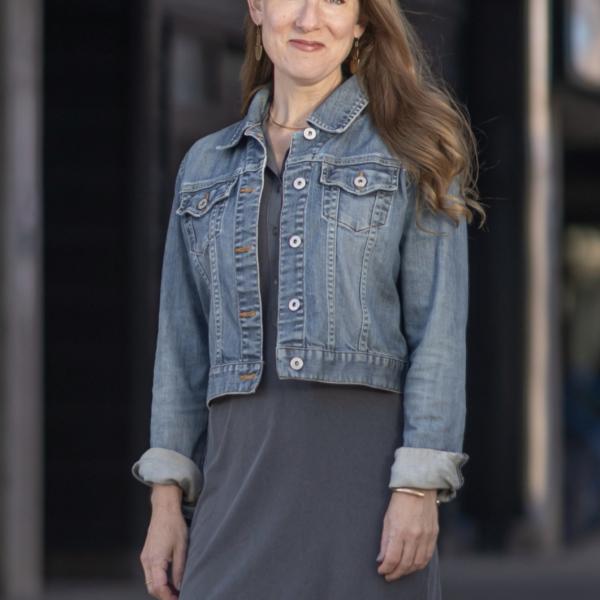
Jennifer Vanderburgh
Jennifer VanderBurgh teaches film and media in the Department of English at Saint Mary's University (Halifax, NS). Her research investigates how Canadian films and TV shows "remember" ways of thinking and "leave footprints" on cultural understandings and built environments. Her manuscript, What Media Remember: Artefacts and Footprints of Television in Toronto, troubles the idea of “Canadian TV” by examining Toronto’s unique and mutually constitutive relationships with television.
Jennifer’s encounters with policies and practices that limit public access to Canada's TV heritage has led to a research and advocacy focus on how TV circulates outside of archives and institutions, particularly VHS recording, collecting, and preservation projects. Her research on the Margaret Perry case study excavates archival records and oral histories to expand the conceptual framework for the NS Film Bureau films beyond the limited scope of government propaganda and anti-modernism, to include women’s labour/cinema, progressive discourse, regional record, and aesthetics/artwork.

Wanda vanderStoop
Wanda vanderStoop provides continuing support to Vtape’s artists, promoting over 5000 independent productions to worldwide markets including museums, national and international festivals, broadcasters, educational institutions and mobile platforms. She is a committed advocate for artist’s rights and fees and contributes to a policy consultation process on the changing methods of dissemination in video and new media.
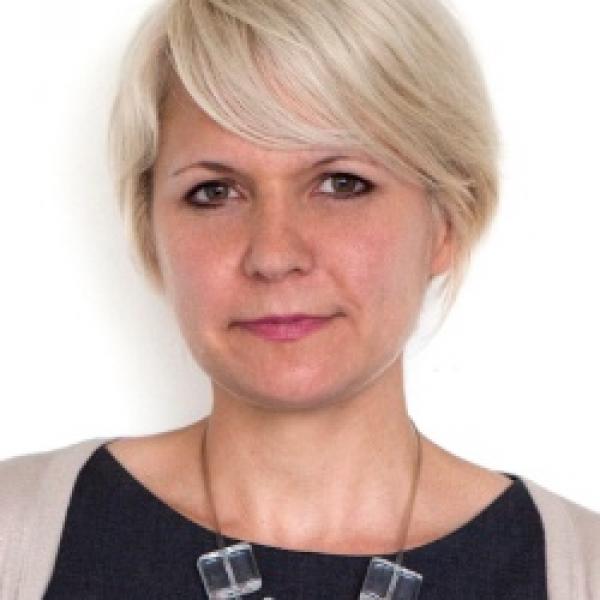
Haidee Wasson
Haidee Wasson is Professor of Film and Media in the School of Cinema, Concordia University, Montreal. She has taught also at the University of Minnesota and at Harvard University. She is author of the award-winning Museum Movies: The Museum of Modern Art and the Birth of Art Cinema. She is also co-editor of several volumes, including: Inventing Film Studies (with Lee Grieveson), Useful Cinema (with Charles Acland), and most recently a book on the American military and its use of film and film technologies, with University of California Press. She also co-edits the Cultural Histories of Cinema book series for the BFI, a series dedicated to analyzing cinema’s expansive role in the complex social, economic, and political dynamics of the twentieth and twenty-first centuries. Her current project maps the importance of portable projectors for the rise and spread of film as a dispersed technological platform, and as institutional and everyday media.
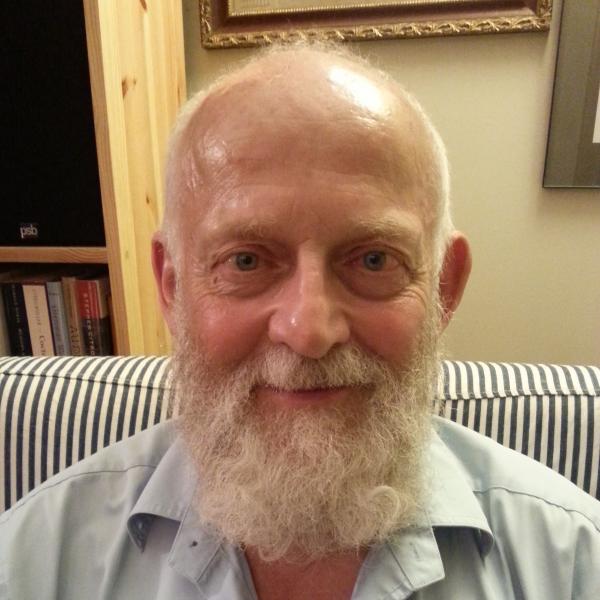
Thomas Waugh
Born 1948, London, Ontario. Graduate of Guelph Collegiate, Western University, and Columbia University. Teacher, programmer, writer, critic, activist, swimmer, cyclist, cook, pianist, and sauna aficionado. Retired in 2017 after 41 years teaching film studies and sexuality/queer studies at Concordia University.
Author, compiler, or editor of 14 books, the most recent being Confess: Constructing the Self in Media and the Arts within the Third Sexual Revolution (co-edited with Brandon Arroyo, McGill Queen's University Press, 2019).
Co-editor with Matthew Hays of 19-book series Queer Film Classics (Arsenal Pulp Press, Vancouver 2008-2019).
Winner of SCMS Katherine Singer Kovacs Book Award (Society for Cinema and Media Studies, 2017) for the monograph The Conscience of Cinema: The Work of Joris Ivens, 1912-1989 (Amsterdam University Press). Founder of Concordia AIDS Project/Community Lecture Series on HIV/AIDS (1993-2017), and of Queer Media Database Canada Quebec (2006+).
Visiting Professor, Film Studies, English and Foreign Languages University, Hyderabad (2018-19).
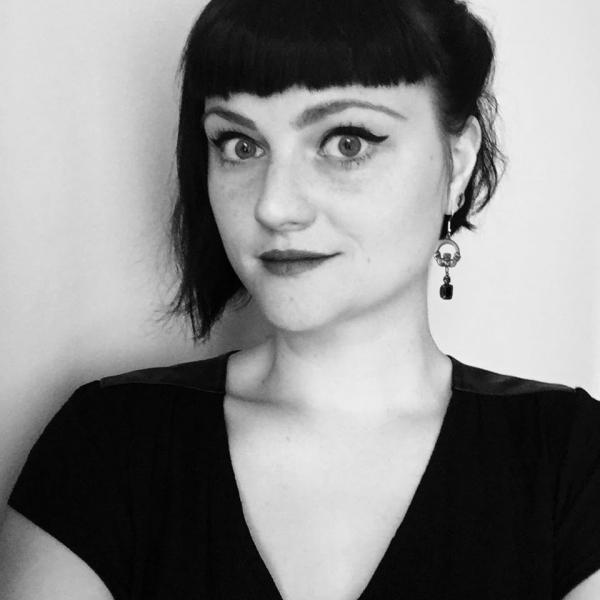
Annaëlle Winand
Annaëlle is a PhD candidate at the Department of Library and Information Science (Université de Montréal). She holds a master degree in History and archival science from the University of Louvain (Belgium). Her research focuses on the notion of archive(s) in experimental films and videos. In parallel to her doctoral research, she is a programmer at the Montreal Underground Film Festival and artistic co-director of Groupe Intervention Vidéo (GIV).
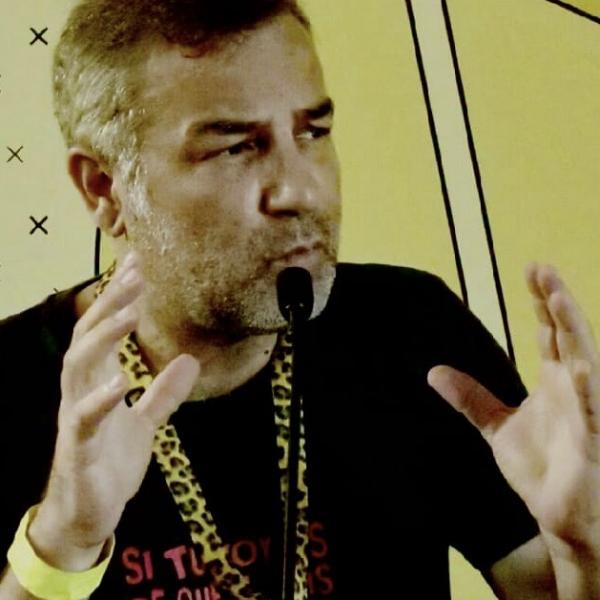
Javad Zeiny
Dr. Zeiny currently teaches English Literature and Film Studies at various universities across France and Switzerland. Graduate of Fribourg University (Swiss), Concordia University (Canada), and Paris 7 University (France). His research considers the histories, theories, and trajectories of Canadian and U.S films and media. He is the author of four books, including Iranian cinema, a national cinema under the influences (from 1900 to 1978-before the revolution), published in 2015. He has published articles on English-speaking cinema and Iranian films in different magazines (in Canada, France, and Iran). His films have been screened and broadcast internationally winning awards. Since 2004 he has been the director of the Uninvited Film Festival (Canadian Film Festival in Paris), which is taking place at the Canadian Cultural Center in Paris and UNESCO.
Currently, he is working on Canadian cinema (from the '90s to 2020), with an emphasis on migration, displacement, and settlement.
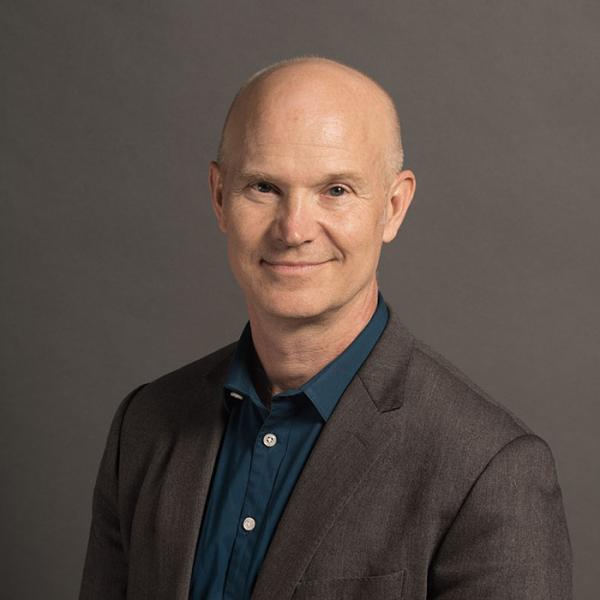
Michael Zryd
Michael Zryd is Associate Professor in Cinema & Media Studies at York University in the Department of Cinema & Media Arts (School for the Arts, Media, Performance, & Design), and is appointed to the Graduate Programs in Cinema and Media Studies, Humanities, and Communication & Culture. Zryd is a researcher in experimental film and media (including video art, installation, and new media) with foci on its institutional ecologies, and the history of its intersection with the academy and the art world. He was founding co-chair of the Society for Cinema and Media Studies (SCMS) Experimental Film and Media Scholarly Interest Group (ExFM), and the Toronto Film & Media Seminar. In 2020, he was awarded the Faculty of Graduate Studies Teaching Award. He is currently undertaking SSHRC Insight Grant-funded research on the history of film co-ops in Canada.
Past Researchers & Partners
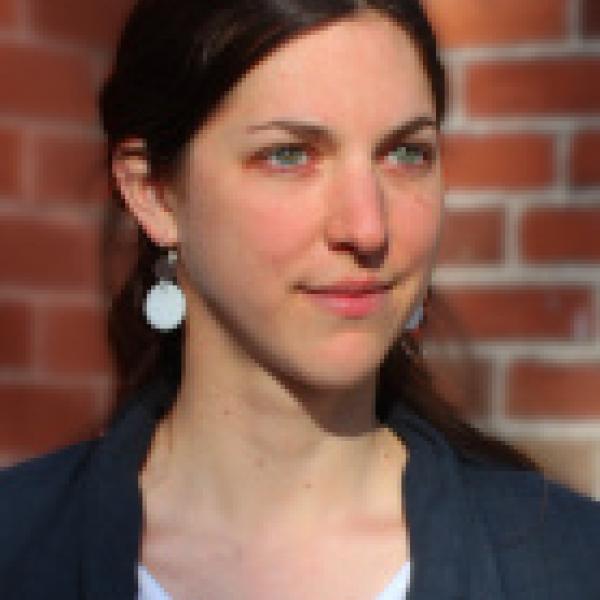
Marina Gallet
Titulaire de deux maîtrises en Gestion de patrimoines audiovisuels (Institut national de l’audiovisuel, France, 2009) et en Arts et médias numériques (Paris 1 Panthéon-Sorbonne, France, 2011), Marina Gallet œuvre depuis dix ans dans le domaine de la préservation et de la valorisation du patrimoine audiovisuel. D’abord chargée de mission pour la numérisation d’archives audiovisuelles chorégraphiques en France, elle a rejoint la Cinémathèque québécoise en 2012 en tant que Chef de services des collections, avant d’y devenir Directrice des Collections en 2017.
Holder of two Masters in Audiovisual Heritage Management (National Audiovisual Institute, France, 2009) and Arts and Digital Media (Paris 1 Panthéon-Sorbonne, France, 2011), Marina Gallet has been working for ten years in the field of preservation and enhancement of audiovisual heritage. Initially in charge of the digitization of choreographic audiovisual archives in France, she joined the Cinémathèque Québécoise in 2012 as Head of Collections Services, before becoming Director of Collections in 2017.
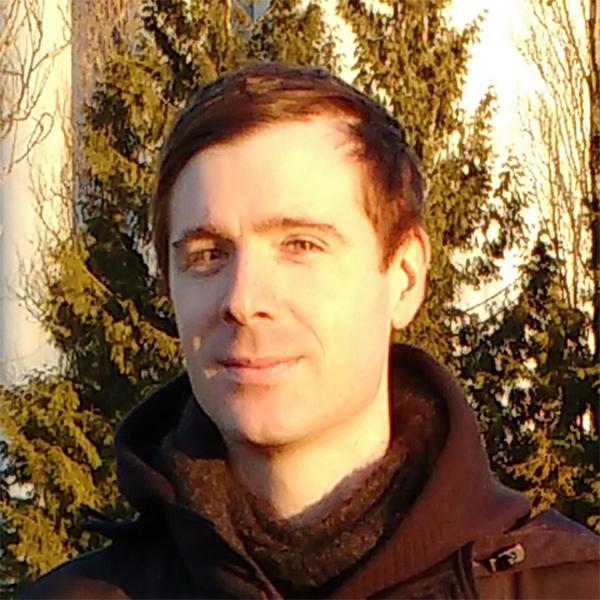
Sydney Hart
Sydney Hart is a writer and artist. He received a PhD in Cultural Studies from Queen’s University (2021), where he continues to work as Teaching Fellow in the Department of Film and Media. Through his critical writing and artistic research, Sydney is interested in critically examining the media of contemporary logistics and extractivism in Canada. Sydney’s critical writing on art and digital media has appeared in magazines including C Magazine and Esse arts + opinions, and in journals including Synoptique and Intermédialités. He is based on the unceded territories of the Musqueam, Squamish and Tsleil-Waututh First Nations in Vancouver.
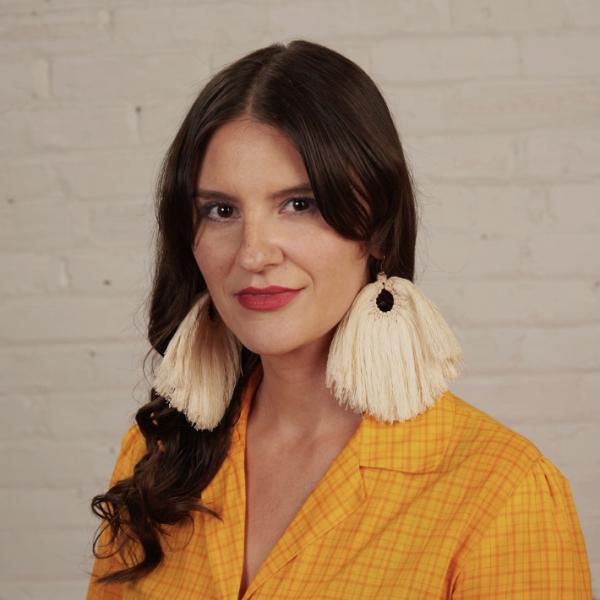
Niki Little
Niki Little is a mother, artist/observer/curator, and arts administrator. She is one of the founding members of The Ephemerals, who were long listed twice for the Sobey Art Award. She is of Anishininew (Oji-Cree)/British descent from Kistiganwacheeng (Garden Hill FN, MB), based in Winnipeg. Her interests lay in artistic and curatorial strategies that investigate immersive and non-linear storytelling, multi-generations, continuums, and consumption. For over 12 years, Little has been an art and cultural worker producing large creative projects through an Indigenous and community-based lens. From 2019-2021, she was the Artistic Director at imagineNATIVE (Toronto), the world’s largest presenter of Indigenous screen content. Prior to imagineNATIVE, Little was the Director of the National Indigenous Media Arts Coalition (NIMAC) where she organized Listen, Witness, Transmit (2018), a national Indigenous media arts gathering in Saskatoon, SK that included roundtables, performances, screenings, and exhibitions. As an independent curator, Little co-curated níchiwamiskwém | nimidet | my sister | ma soeur, at the 2018 La Biennale d’Art Contemporain Autochtone (BACA) in Montréal and surrounding areas and co-hosted Migration, a three week on the land residency with Becca Taylor in Demmitt, Alberta. Little was part of the commissioned co-curated exhibition Nests for the End of the World (2020) at the Art Gallery of Alberta.
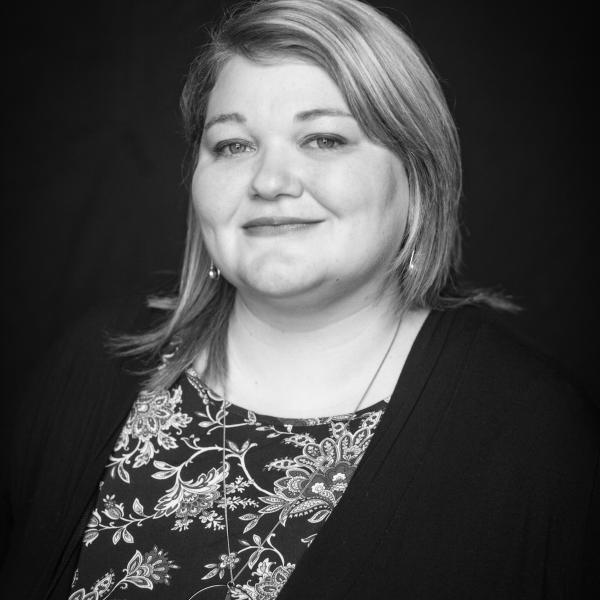
Monica Lowe
Monica Lowe was the Distribution Director at the Winnipeg Film Group since 2006. She spearheaded many important projects, such as the re-striking of Guy Maddin’s Archangel and the construction of a climate-controlled media vault. She was the Editor on Finding Focus: Framing Canadian Métis and First Nations on Film, and the Managing Editor on Place: 13 Essays, 13 Filmmakers, 1 City. Monica founded the Women’s Film & Video Network in 2015 and is one the founding members of VUCAVU, a comprehensive distribution platform for independent Canadian film and video. Monica served as the Chair of Nuit Blanche Winnipeg between 2012 and 2018. In July 2018, Monica was promoted to Deputy Director of the Winnipeg Film Group.
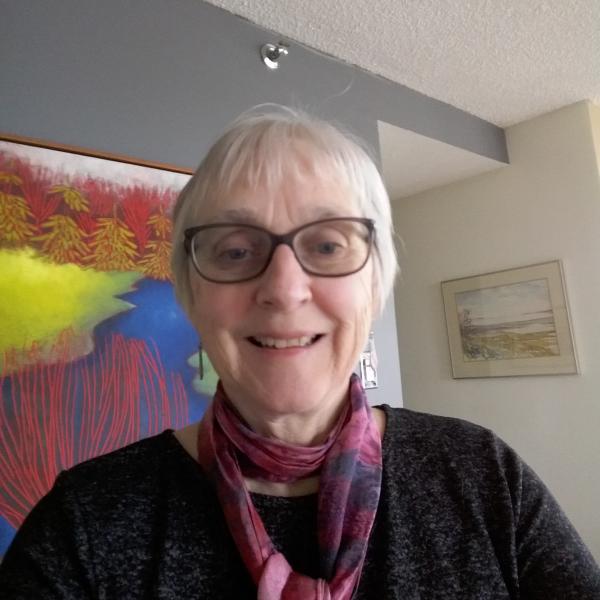
Sharon MacDonald
Sharon is a founding member of the Halifax Women’s History Society. She is the co-author of the book Old Nova Scotian Quilts and a co-founder of the Nova Scotia Heritage Quilt Project. She has also done extensive research on hooked mats. Her M.A. thesis, “Hidden Costs, Hidden Labours: Women in Nova Scotia during Two World Wars,” explored the relief work of women volunteers. Her dissertation: “Neither Memsahibs nor Missionaries: Western Women Who Supported the Indian Independence Movement” is a collective biography about women from the West associated with Gandhi and social uplift in Indian villages. A latecomer to academia, she was over 60 when she completed her Ph.D. She continues to research, write and present women’s history, particularly focussing on early peace activism in Nova Scotia and women’s organizational culture.
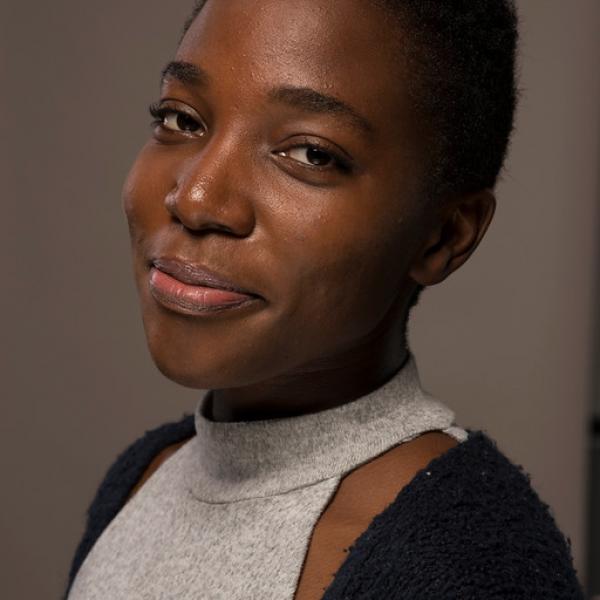
Elizabeth Mudenyo
Elizabeth Mudenyo is a Scarborough-based poet, community-engaged artist and arts manager. She has worked all sides of the film festival circuit, with groups like the Regent Park Film Festival, Hot Docs, and the Racial Equity Media Collective, among others. She managed Home Made Visible, an award-winning nationwide archival project capturing the joys of BIPOC home movies. She continues to immerse herself in arts programming engaging the voices, imaginations and knowings of Black and Brown communities. She is collecting tools in curation, placemaking and social justice organizing.
Elizabeth is a fellow of The Watering Hole and the Poetry Incubator. Her work has appeared in Write Magazine, Arc Magazine, The Ex-Puritan, Canthius, CV2, and elsewhere. Her first poetry chapbook, With Both Hands, was published through Anstruther Press. She is an MFA Candidate at the University of Guelph.
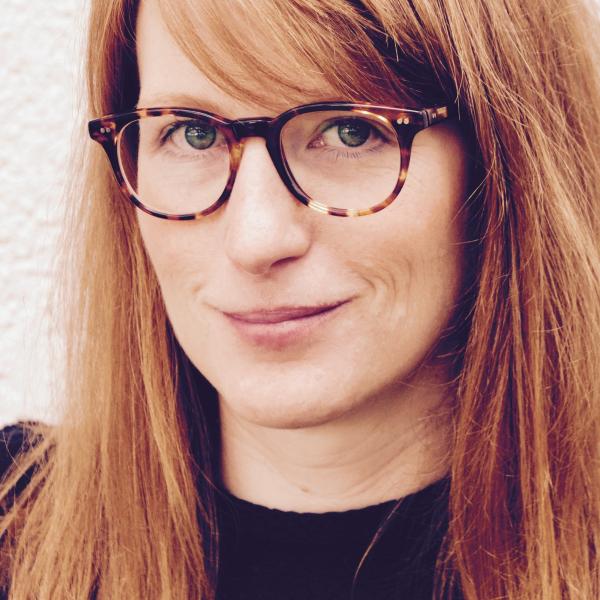
Katharina Niemeyer
Katharina Niemeyer is a media theorist, professor at the School of Media (Faculty of Communication) at the Université du Québec à Montréal, director of CELAT-UQAM (Centre de recherche Cultures-Arts-Sociétés) and co-curator of the TOTAL SCREEN exhibition.
Her research focuses on the relationships between media and (digital) technologies, temporalities, memory, and history. She recently co-edited the book Nostalgies contemporaines : médias, cultures et technologies, published in 2021 by Presses universitaires du Septentrion. She is a member of the editorial board of the journals MAST (Media Art Study and Theory) and Memory, Mind & Media (Cambridge University Press). Katharina Niemeyer is also council member of the International Association for Media and History and co-founder of the International Media and Nostalgia Network.
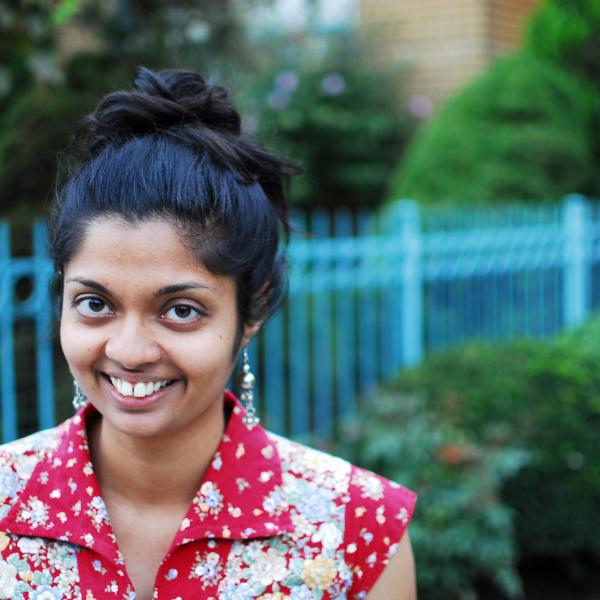
Ananya Ohri
Ananya is an award-winning Arts Administrator, Producer and Writer who was born in India, and moved to Canada when she was ten years old. For seven years, she was the Executive Director at the Regent Park Film Festival (RPFF), Toronto’s longest running free community film festival. At RPFF, Ananya also founded and directed the Lieutenant General Award-winning and Governor General Award finalist (Honourable Mention) project, Home Made Visible (www.homemadevisible.ca), where she worked to preserve old home movies for BIPOC families across Canada.
With 13 years of organizational experience, Ananya consults in areas of research, programming, financial and project management, grant writing and community engagement, supporting Senior Arts Administrators in solving problems, getting things done and increasing capacity for positive change across the organization.
Driven by her experience programming for a community-based film festival and consuming media alongside her own kids, Ananya is motivated to cultivate greater diversity both in front of and behind the screen in the Film and TV industry.
As a filmmaker, her short experimental films and documentaries have screened locally and internationally, including the Berlinale, the Images Festival, at UNICEF, and at the Toronto Urban Film Festival, where her film "Castles on the Ground" won Best Film.
As a recipient of CBC/Radio-Canada and Canada Council for the Arts Creation Accelerator funding, Ananya is currently producing and writing a kids’ animated adventure mystery series , created with collaborator Fiona Raye Clarke.
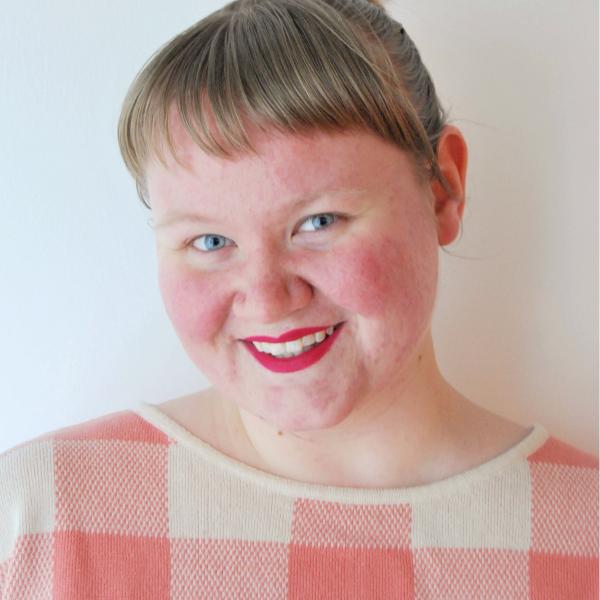
Stephanie Poruchnyk-Butler
Stephanie Poruchnyk-Butler is a queer femme writer, artist and workshop facilitator from Winnipeg, Manitoba. She is the creator of several independently published zines, as well as a co-founding member of feminist arts collective, Sappho Zine (2012-2016). Building community through collaborative art making is a passion of hers, and she have been facilitating workshops for children, teenagers and adults at various arts organizations for over six years.
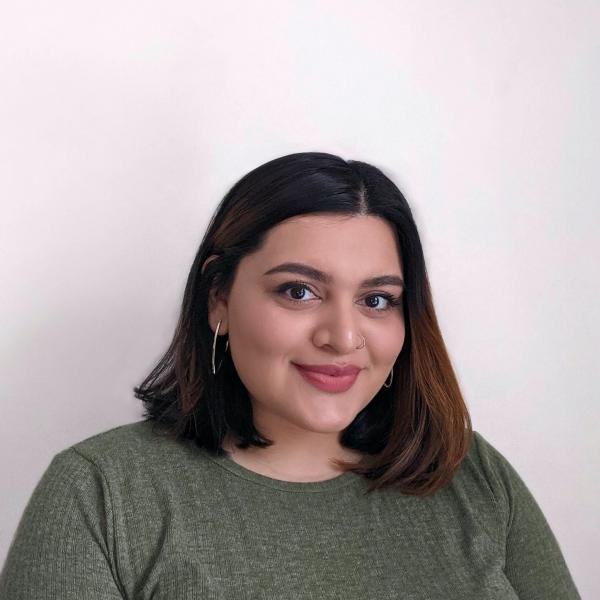
Aashna Thakkar
Aashna Thakkar (she/her) is an Indo-Canadian interdisciplinary artist, film festival programmer, and writer living in Toronto. Prior to becoming the Manager of Programming at the Regent Park Film Festival in 2021, she held the role of Program Coordinator in 2019. Additionally, she has worked at the Hot Docs Canadian International Documentary Festival with the Docs for Schools program and is currently the Lead Programmer of Breakthroughs Film Festival.


